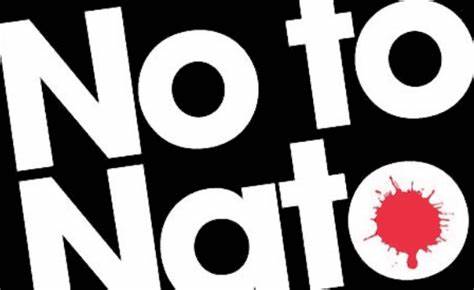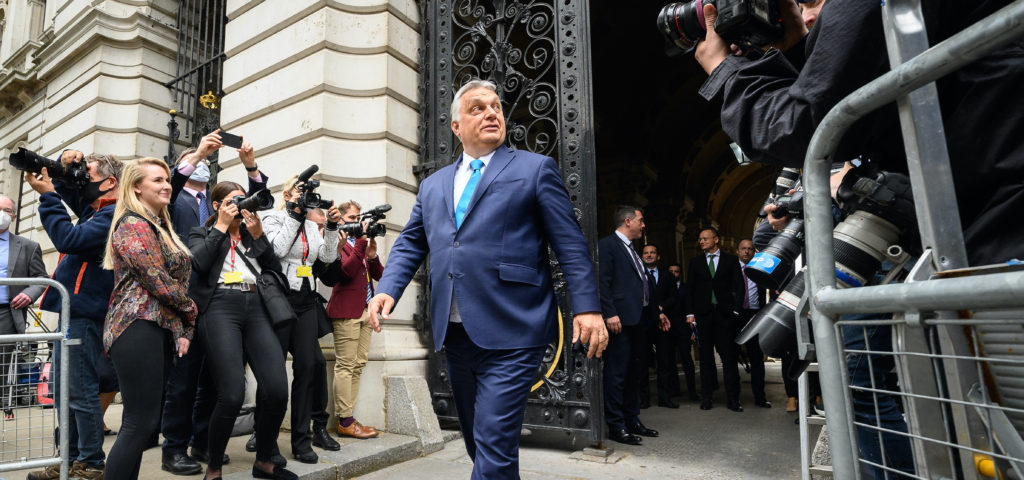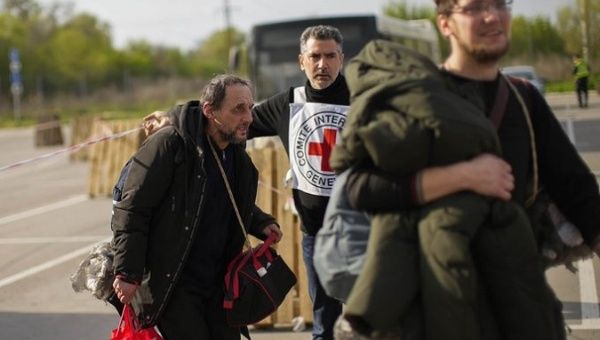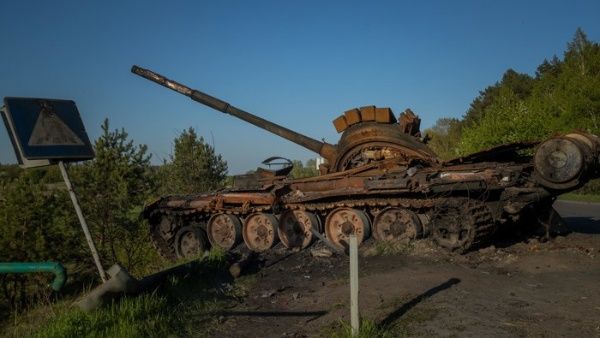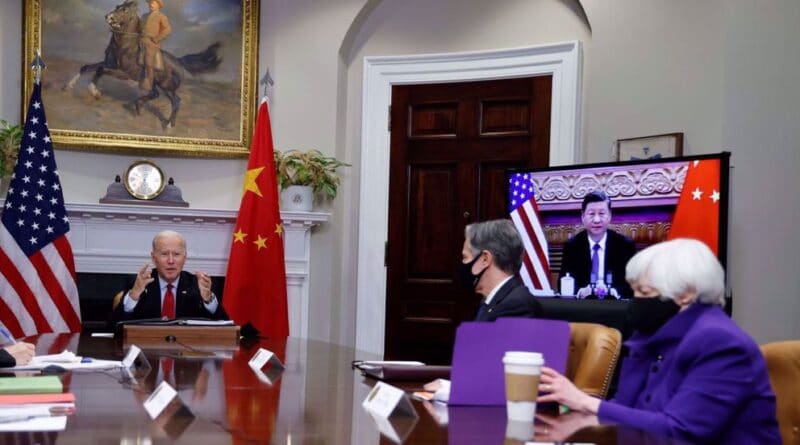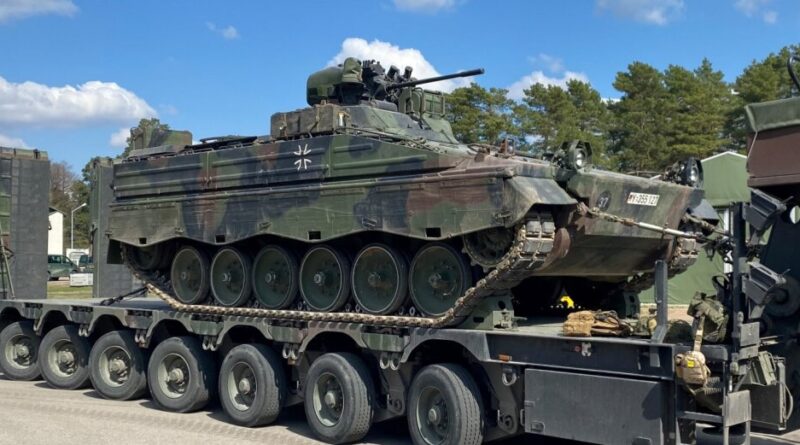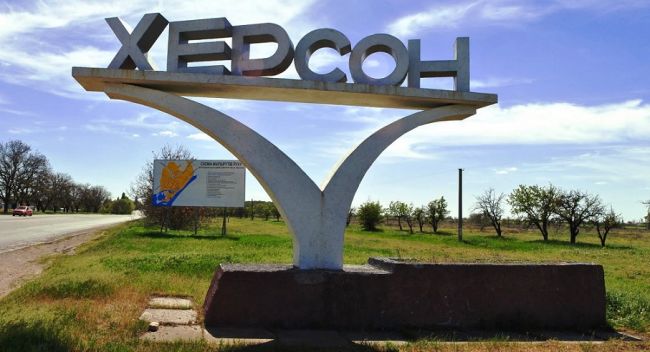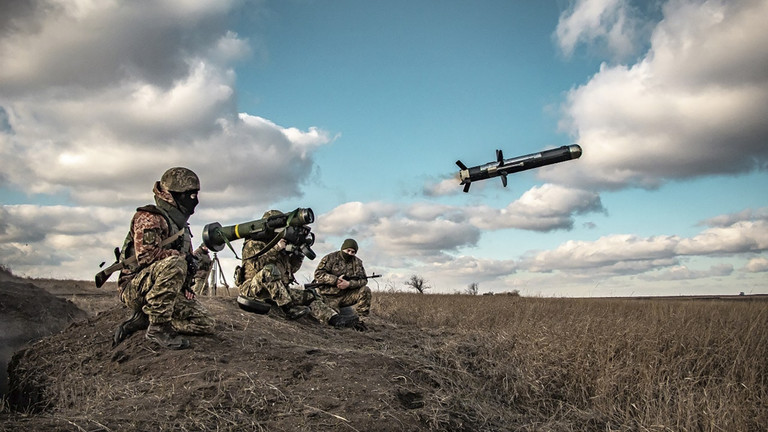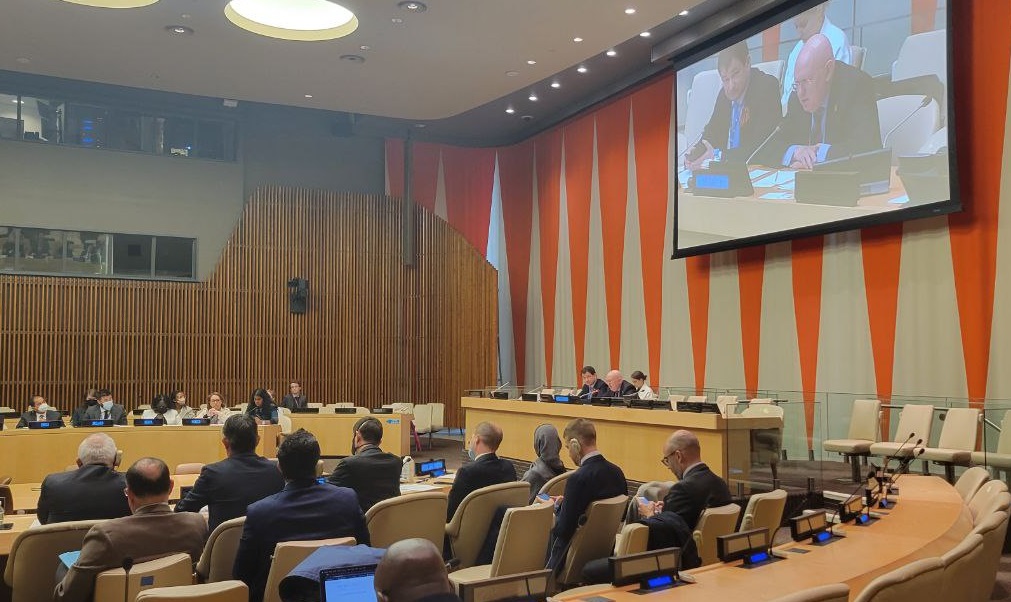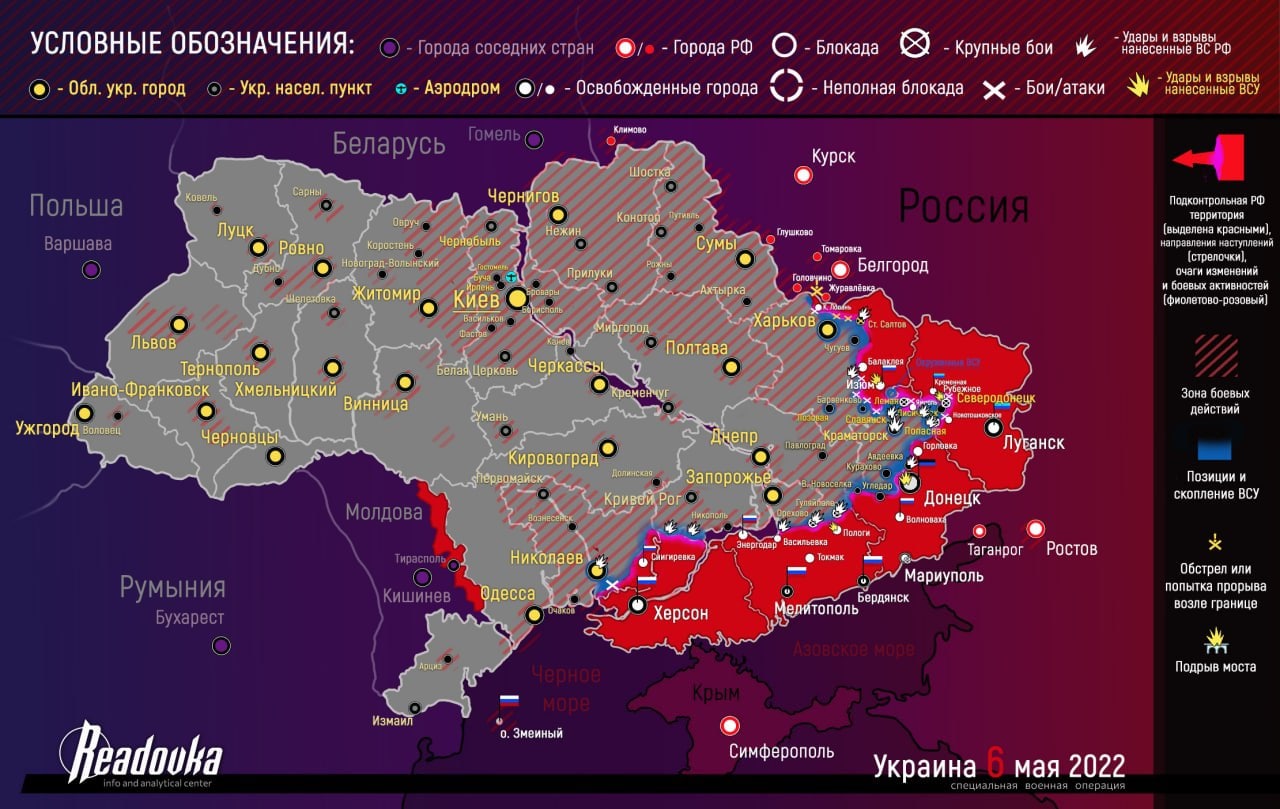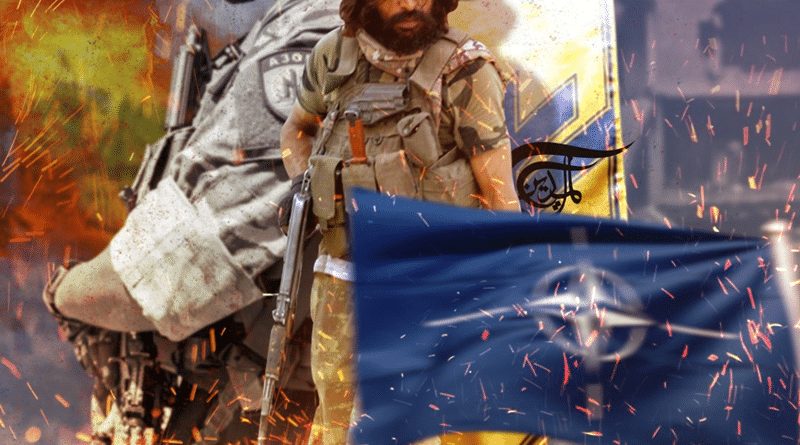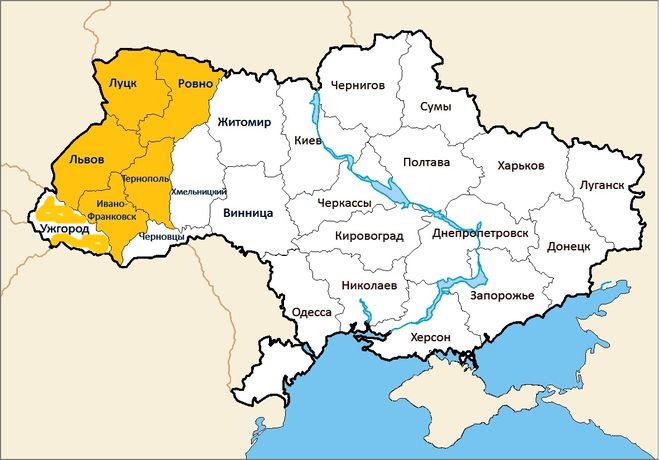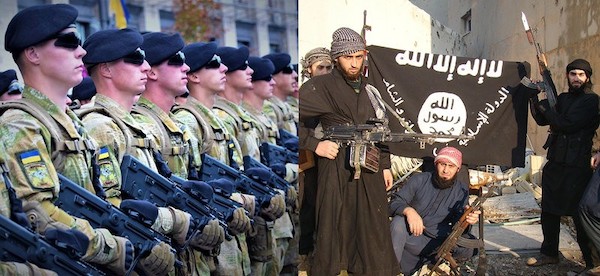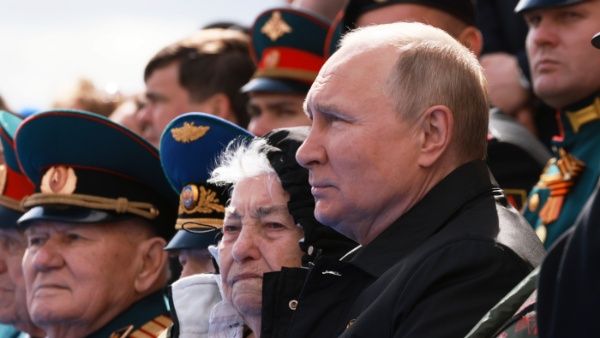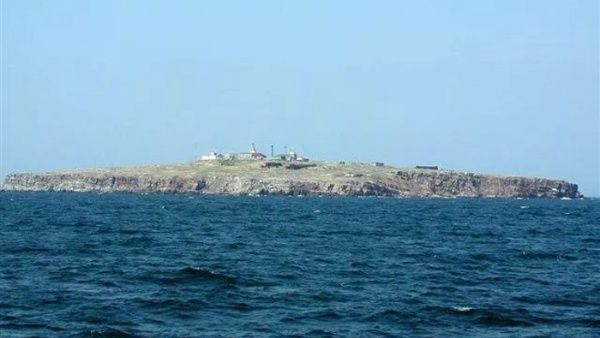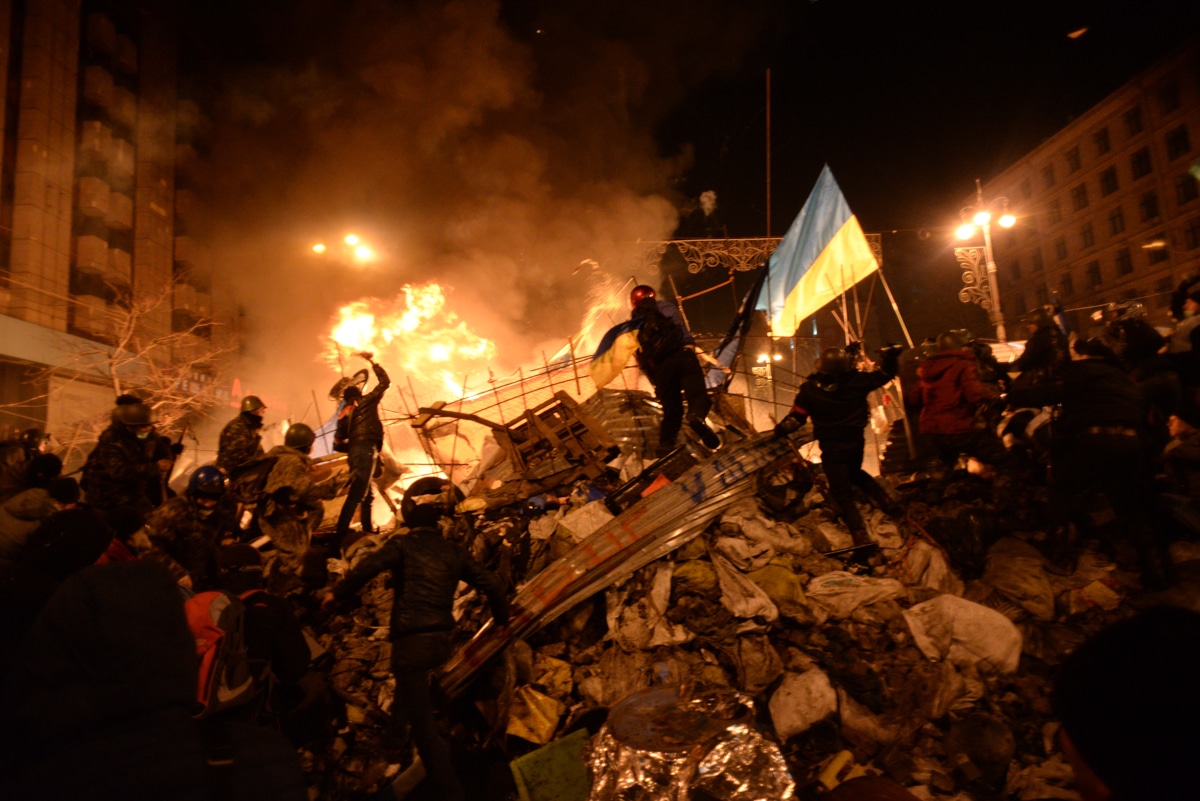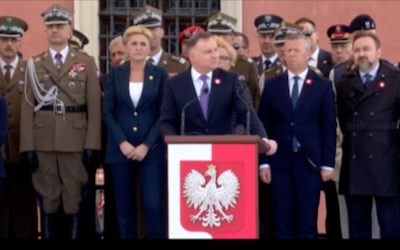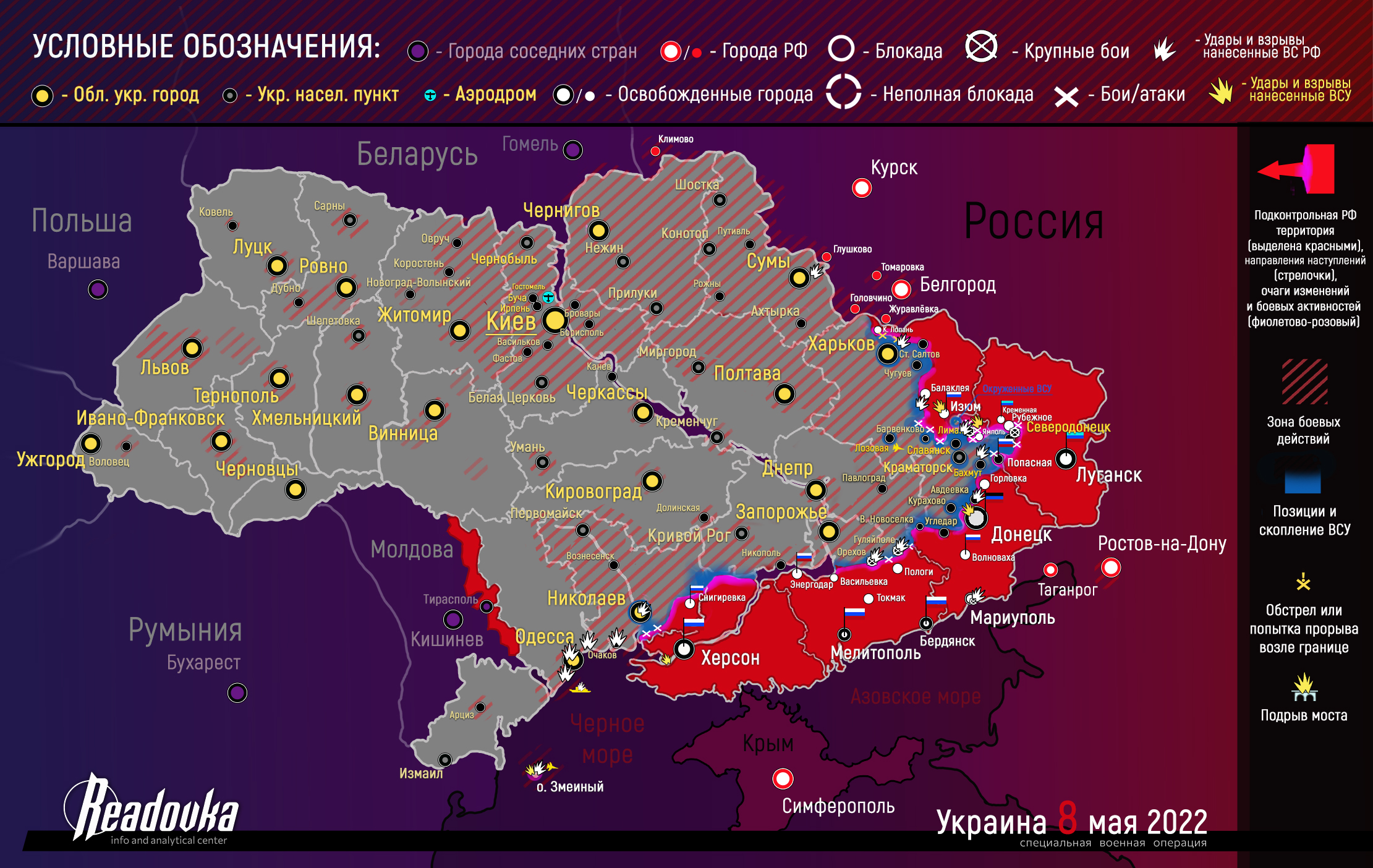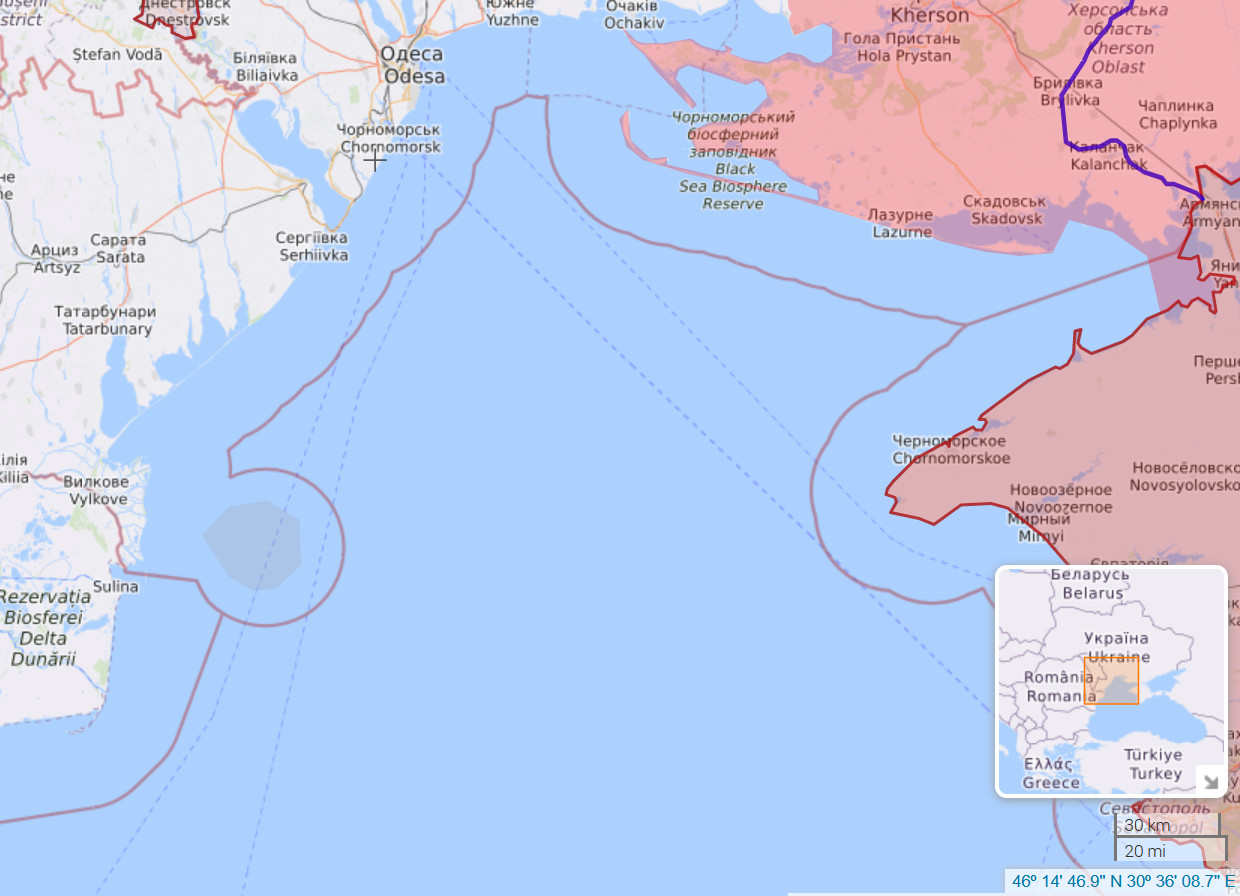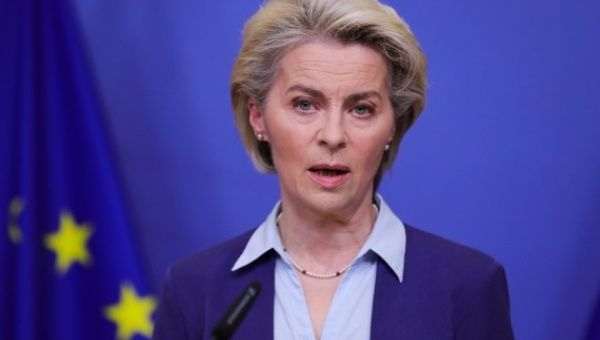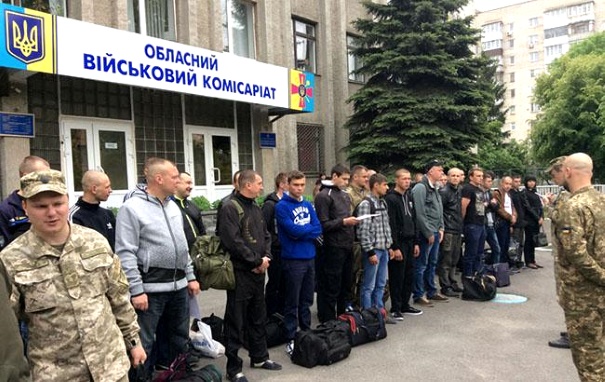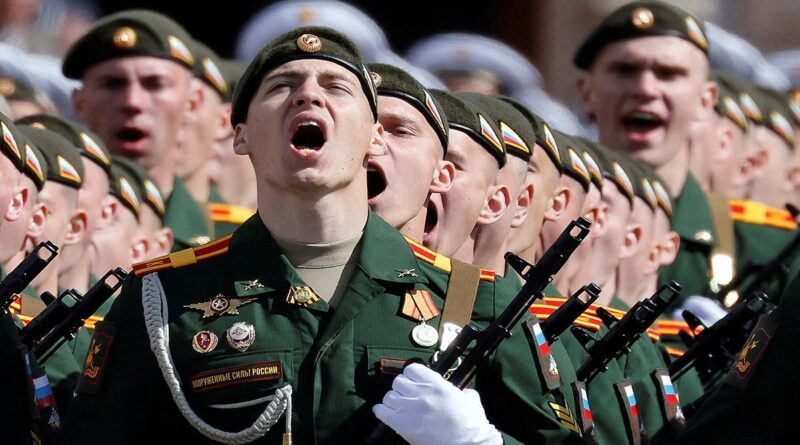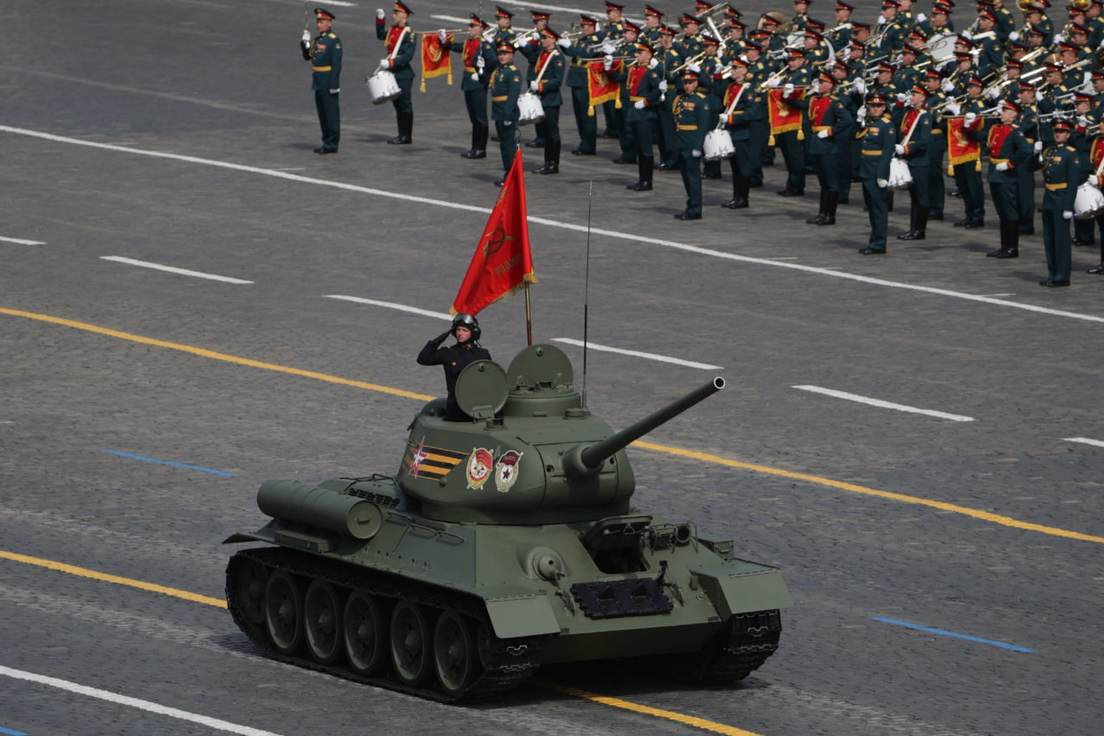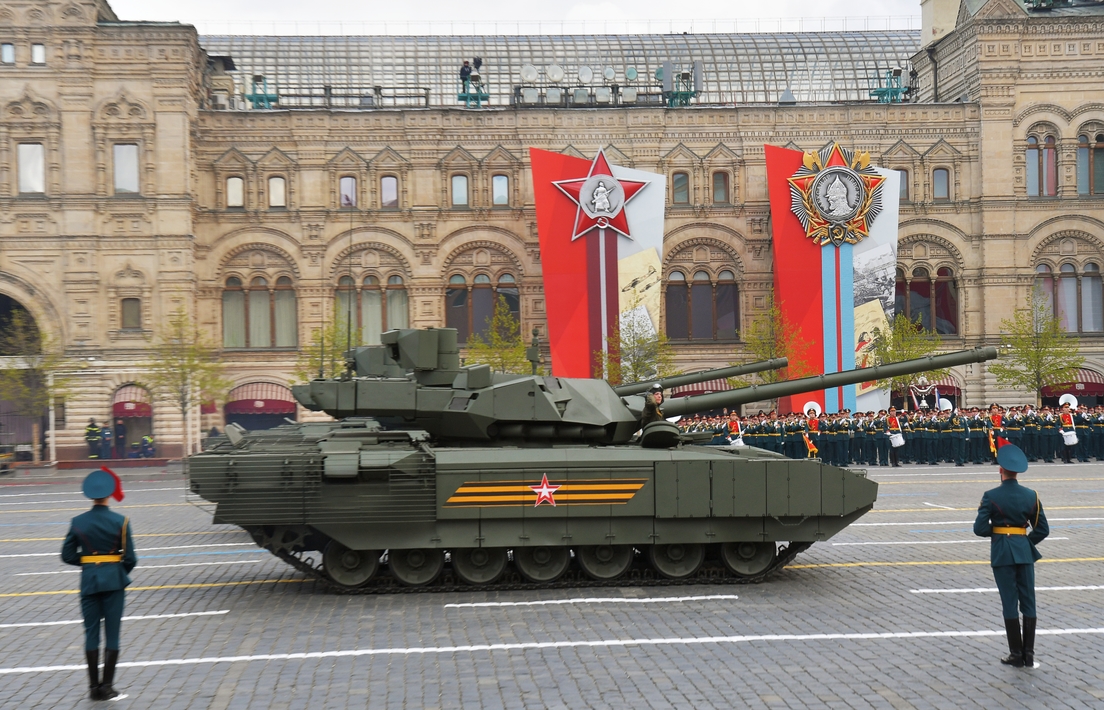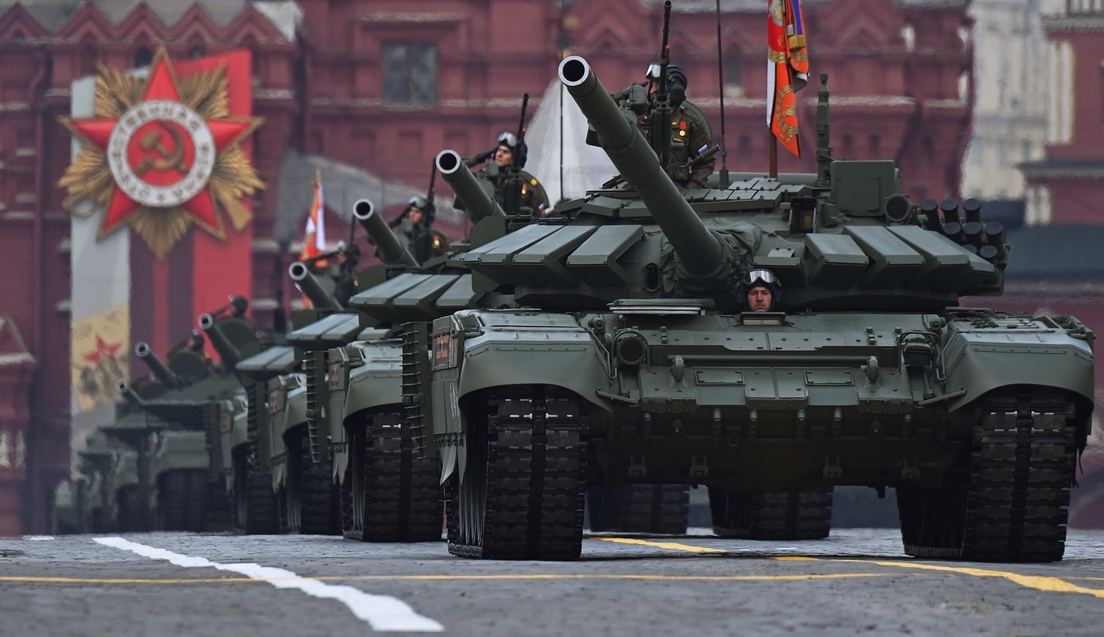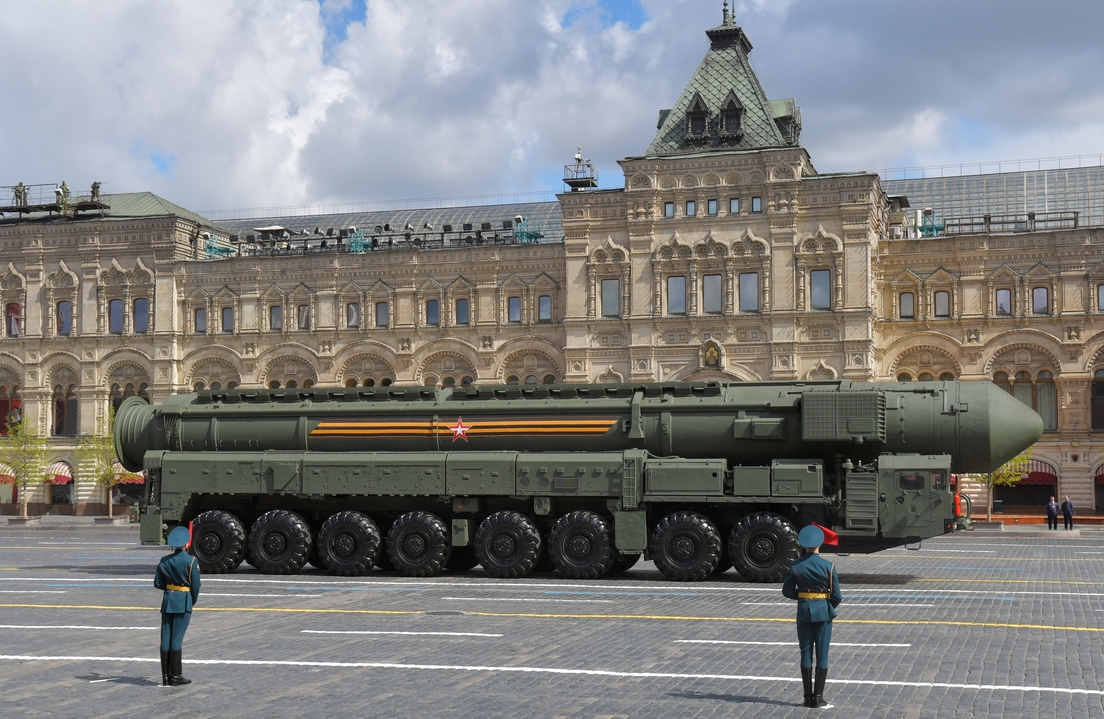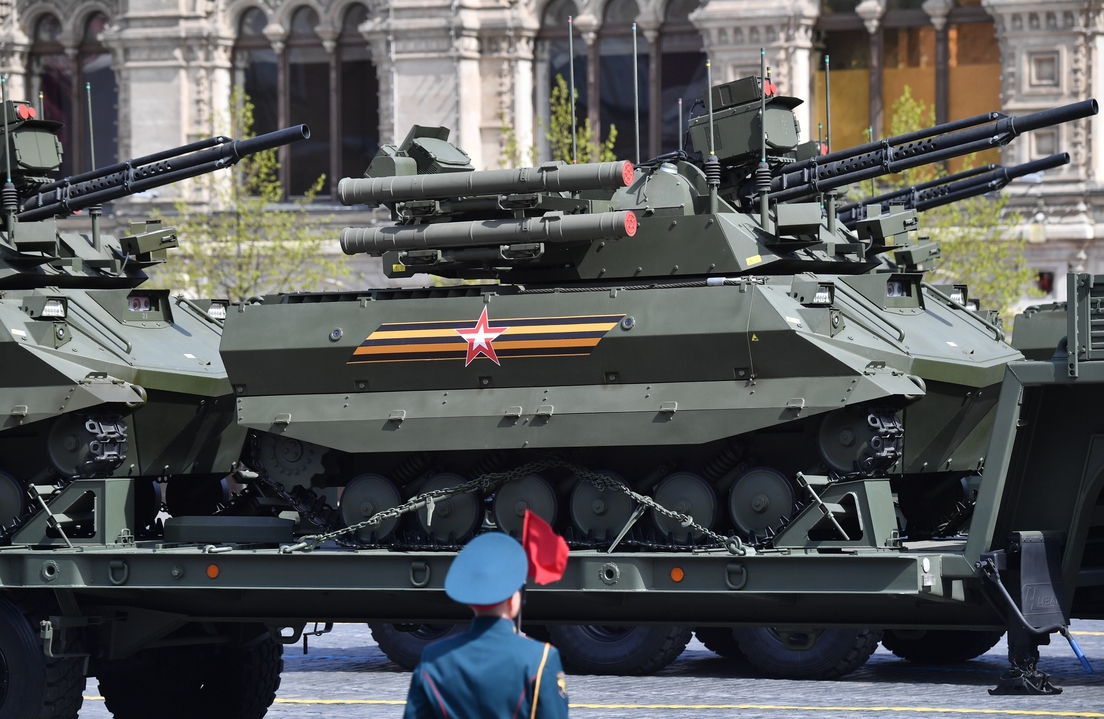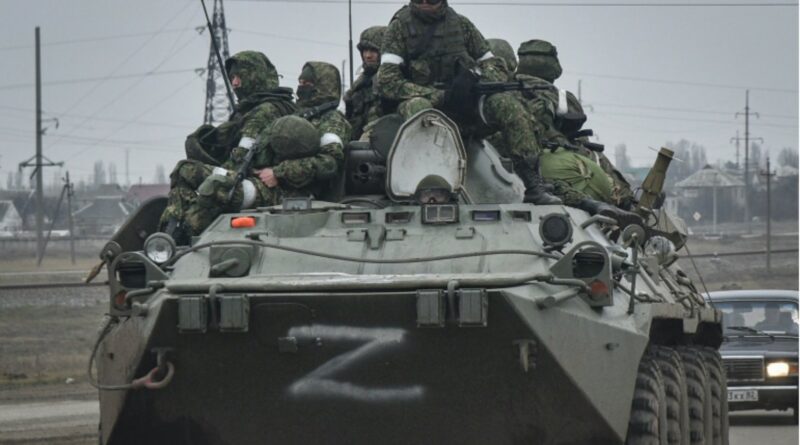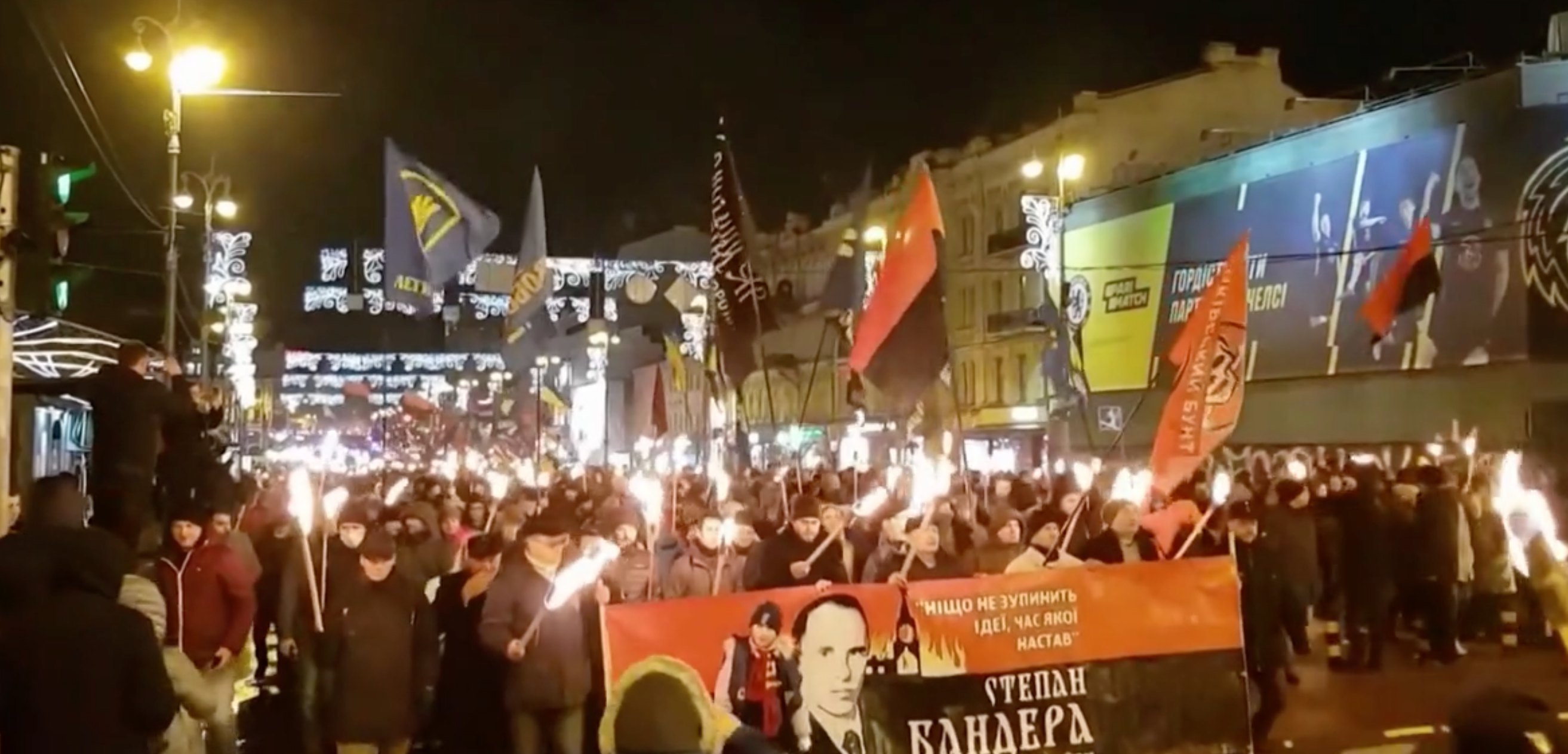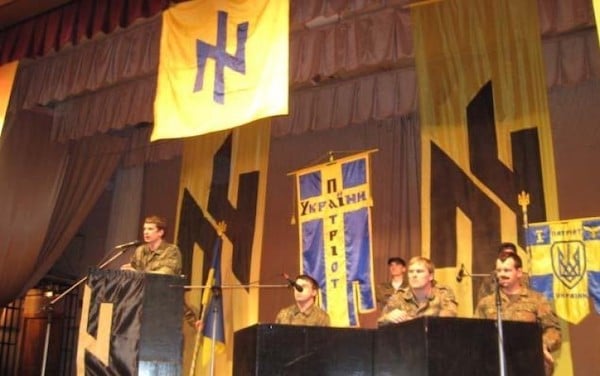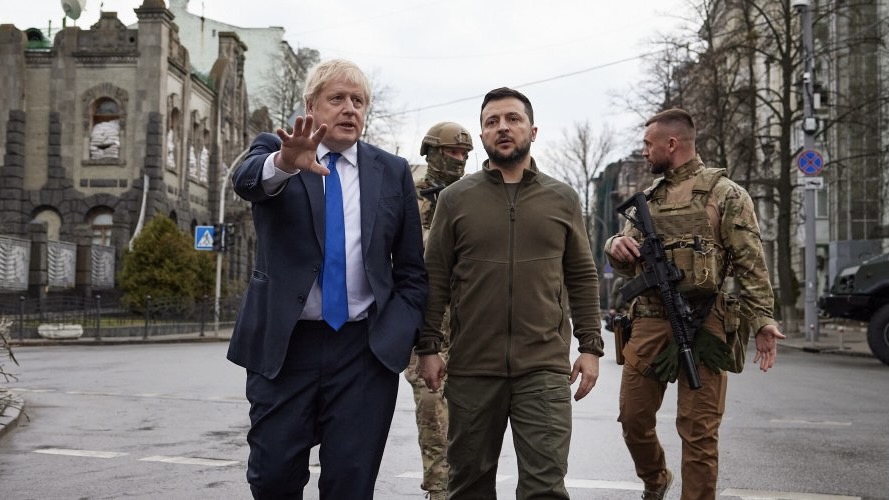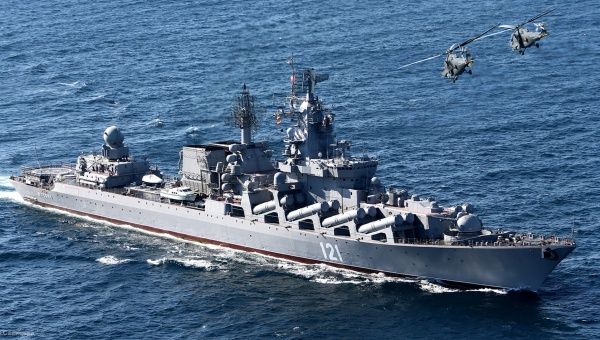
Russian cruiser Moskva | Photo: Wikipedia
Published 5 May 2022
CNN has reported that the United States had provided Ukraine with some information that allegedly allowed Kiev to strike the Russian cruiser Moskva, citing sources.
On May 5, the Ukrainian conflict continues with no sign of a solution. However, Russia will keep a humanitarian corridor open from Thursday to Saturday for the evacuation of civilians from the Azovstal plant. Below are the main developments of this conflict as they happen:
CNN reports that US provided intel that helped Ukraine target Russian cruiser "Moskva"
CNN has reported that the United States had provided Ukraine with some information that allegedly allowed Kiev to strike the Russian cruiser Moskva, citing sources.
According to them, the Ukrainian military received intelligence data from the Americans on the location of the Russian Navy cruiser Moskva. Meanwhile, the report notes that it is unknown whether the U.S. knew that Ukraine would strike the ship. According to the sources, Washington was not involved in this decision.
As the TV channel's interlocutors noted, there are clear limits on what the U.S. will share with Kiev.
Thus, it is stressed that Washington has so far refused to provide Ukraine with information about potential targets inside Russia itself.
In addition, the U.S. rejects information that it has provided Ukraine with intelligence on the location of specific Russian military commanders.
"We do not provide intelligence on the location of senior military leaders on the battlefield or participate in the targeting decisions of the Ukrainian military," Pentagon spokesman John Kirby told reporters Thursday.
Earlier, the New York Times cited senior U.S. administration officials as saying that the United States had provided intelligence to the Ukrainian armed forces, which they used to eliminate high-ranking officers of the Russian Armed Forces.
On the night of April 14, the Russian Defense Ministry reported a fire on the cruiser Moskva, the flagship of the Russian Black Sea Fleet. It was officially announced that the detonation of ammunition caused the fire and the ship was seriously damaged. Late in the evening of April 14, the ministry said that the ship sank while being towed.
Neo-Nazis detained in South Russia employed tactics of Ukrainian terrorists
Six people, detained in South Russia’s Rostov Region on suspicion of participating or organizing an extremist group, employed the tactics of a Ukrainian terrorist group, the Russian Interior Ministry’s Rostov Region department has said.
"Officers of the anti-extremism center of the Russian Interior Ministry’s Rostov Region department, jointly with the regional department of the Federal Security Service (FSB), have stopped operations of an extremist group. Its members and organizers employed the tactics, used by a terrorist organization, outlawed in Russia, whose internet sites and forums are administered by governmental organizations controlled by Ukraine’s military and political leadership," the department’s press service said.
According to the report, the group carried out its first act of extremism in the city of Shakhty in October 2021, vandalizing a World War II memorial and a mass grave in the city. In 2022, they set a cafe on fire. They also painted Nazi symbols on government buildings.
The group also carried out a series of ethnicity-motivated attacks in Novocherkassk and Rostov-on-Don, in which at least one person was seriously injured.
"The miscreants made videos of their unlawful actions and disseminated those videos on social networks with the goal of recruiting new members. They also disseminated information related to Neo-Nazism, as well as symbols of Nazi Germany," the press service said.
A community with restricted access was created in an internet messenger, allowing the group’s members from various cities and towns of the Rostov Regions to communicate.
During searches at apartments of the group's members, police seized firearms, telescopic sights, knuckles and expandable steel batons, as well as mobile devices and information storage devices.
The Federal Security Service’s office in the Rostov Region said earlier this week a group of young people had been detained on suspicion of neo-Nazism-motivated crimes. The group’s leaders have been charged with setting up an extremist group, other members - with participating in an extremist group. Six members of were placed in custody and one remains under house arrest.
Hostilities in Ukraine can be over within week, but West does not want this - Lukashenko
The hostilities in Ukraine can be over in just one week, but the West does not want it to happen, Belarusian President Alexander Lukashenko has said.
"I see that Ukraine was not inclined to solve problems step by step, and this led to a war. So when you speak of some atrocities in Ukraine, you should address those questions to Poland, in the first place, to the United States, to the United Kingdom. If you - the United States and the United Kingdom - are interested in seeing the end of the war in Ukraine, this can be done within a week, maybe even earlier. But you are not interested in that," he was quoted as saying by the state-run Belta news agency, in an interview to Associated Press.
Russia ready to resume strategic discussions with US when Washington is - ambassador
Russia will be prepared to resume its strategic consultations with the United States when Washington is ready, Russian Ambassador to the US Anatoly Antonov said in an article for Newsweek.
The ambassador emphasized that thanks to Russia’s efforts, the New START treaty was extended for five years in February 2021.
In his words, the agreement is "a universally recognized gold standard in the sphere of maintaining strategic stability and transparency between the major nuclear powers."
"Russia has repeatedly drawn the attention of the United States that it is important to continue the joint work on an agreement that could replace New START and accommodate new realities of international security and development of military technologies," he continued.
"Regrettably, Washington has unilaterally 'frozen' the bilateral strategic stability dialogue that was launched at the Geneva summit, thus jeopardizing the prospects of keeping the foundation of arms control in place," the Russian diplomat added. "Russia is ready to resume the consultations as soon as the United States is ready.".
Ukraine will stop Russian gas transit if the European Union (EU) decrees embargo. The chairman of the Ukrainian Parliament's Energy Committee Andriy Gerus said that his country is ready to immediately stop Russian gas transit if the EU decides to impose an embargo.
He hopes that European countries will endorse the sixth package of sanctions against Russia, which was presented by the European Commission (EC) and includes a gradual oil embargo.
The Ukrainian lawmaker asked the Europeans to start preparing a seventh package of sanctions as Russia "must understand" the war in Ukraine has a high cost.
Ukraine won't agree to "frozen conflict" with Russia. President Volodymyr Zelensky said that Kiev will not agree to any deal that would lead to a "frozen conflict" with Russia, the Ukrinform news agency reported.
"We will not settle for a frozen conflict... I am against it. We will definitely not have such a document," Zelensky said, adding that the Minsk agreements, which had put an end to the intense military stage of the Donbass conflict several years ago, proved to be ineffective.
Russia expels 7 Danish diplomats in a retaliatory move. The Ambassador of Denmark to Russia Carsten Sondergaard was summoned to the Russian Foreign Affairs Ministry in protest over Denmark's decision to declare 15 Russian employees working at the Russian Embassy in Denmark and the Russian Trade Representation in Copenhagen "personae non gratae.".
The seven diplomats were ordered to leave Russia in two weeks. Russia reserves the right to take additional retaliatory measures against future unfriendly actions.
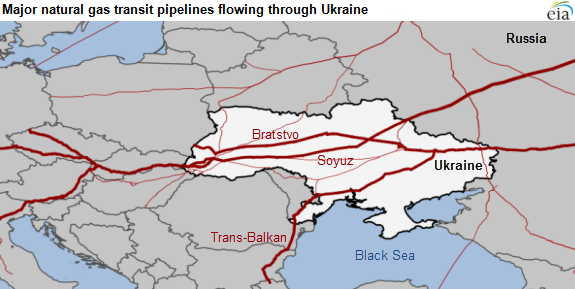
France announces US$2-billion-aid for Ukraine. So far this year, France has already given Ukraine $1.7 billion, President Emmanuel Macron recalled, adding that his country will contribute an additional US$300 million.
The announcement was made at the "International Donor Conference for Ukraine Support" held in Warsaw and hosted by Poland and Sweden. Over US$6.3 billion were raised at this event, Polish Prime Minister Mateusz Morawiecki told reporters.
Russia opens a humanitarian corridor from Thursday to Saturday for the evacuation of civilians from the Azovstal plant. The corridor will be effective from 08:00 to 18:00 Moscow time, the Joint Coordination Headquarters of the Russian Federation for Humanitarian Response said. During this period, Russian troops and the forces of Donetsk will unilaterally cease hostilities and ensure the withdrawal of civilians both to Russia and to areas controlled by Ukraine, it added.
Two villages in Russia's Belgorod Region were shelled from Ukrainian territory. On Thursday, several power lines were damaged along with five houses, Governor Vyacheslav Gladkov said, noting there were no civilian casualties.
https://www.telesurenglish.net/news/LIV ... -0011.html
UN Russian Envoy: Economic World War Taking Place

UN: Russian envoy to the United Nations Vassily Nebenzia said during a UN Security Council meeting on Ukraine that a world war is currently taking place at an economic level. | Photo: Twitter @btramsnews
Published 6 May 2022 (2 hours 14 minutes ago)
The Russian UN envoy noted there are vested interests in certain circles that have sought for a long time to transform Ukraine into a bridgehead for a battle with Russia.
The Russian permanent representative to the United Nations Vassily Nebenzia said during a UN Security Council meeting on Ukraine that a world war is currently taking place at an economic level in light of the measures taken against Russia in response to its special military operation in Ukraine.
Judging by the speed with which the economic war against Russia was unleashed, the West has been preparing for it for a long time, Nebenzia said on Thursday.
“This is not a war in Ukraine, contrary to what you say, this is a proxy war of the collective West against the Russian Federation. It is as if you were eagerly awaiting this moment to unleash repression against Russia. And if we were to talk about world war then, without a doubt, it is being waged at the economic level today,” Nebenzia said.
The Russian envoy noted there are vested interests in certain circles that have sought for a long time to transform Ukraine into a bridgehead for a battle with Russia, and they have done everything possible to achieve this goal ever since Ukraine became independent 30 years ago.
Nebenzia stressed that Russia does not hold any illusions at present or had in the past, about the plans by the West to have Ukraine become a member of NATO, as rampantly overlook Russia's proposals and suggestions regarding Europe's security.
On February 24, Russia launched a special military operation in Ukraine after the breakaway republics of Donetsk and Lugansk requested help in defending themselves from intensifying attacks by Ukrainian troops.
The Russian Ministry of Defense said the operation is targeting Ukrainian military infrastructure only. In response, Western nations imposed comprehensive sanctions against Russia.
https://www.telesurenglish.net/news/UN- ... -0003.html
Belarus Denounces NATO Doubling Forces in Eastern Europe

In a further escalatory move, NATO plans to create attack groups near Belarus and Russia, further heightening tensions in Eastern Europe.. | Photo: Twitter @MayadeenEnglish
Published 6 May 2022
The Belarusian General Staff warned that NATO forces are concentrated on the borders of Russia and Belarus, which makes it possible for them to create attack groups.
The deputy chief of the Belarusian General Staff, Ruslan Kosygin, warned Thursday that the North Atlantic Treaty Organization (NATO) has doubled the number of its military forces in Eastern Europe.
The official said that Western countries stepped up activities to reinforce troops in Eastern Europe and the Southeast. "A considerable part of the forces and means, supposedly intended to strengthen the eastern flank of the alliance, have been transferred from the continental part of the United States," he specified.
According to Kosygin, "about 37,500 military personnel, including 24,500 foreign military personnel deployed in Poland and in the Baltic Sea countries are equipped with modern attack weapons, which is twice as much as the indicators for 2021".
Denouncing this situation, the deputy chief of the General Staff warned that NATO forces are concentrated on the borders of Russia and Belarus, which makes it possible for them to create strike groups in a short time.
"NATO forces are located near the borders of Russia and our country. It is possible to create strike groups on their base within the tightest deadlines for further use towards Belarus," Kosygin asserted in a statement released by the Telegram channel of the Belarusian Defense Ministry.
On the other hand, he also reported that they have registered large-scale military exercises on several European territories. "In 2020, there were 67 exercises, and in 2021 - 80 exercises. Since the beginning of this year, NATO forces and national armies have conducted 15 exercises," Kosygin detailed.
He also recalled that military exercises are currently being executed on territories of Central and Eastern Europe. "In fact, preparations are underway for combat operations in the eastern direction," he noted.
This is happening more than two months after the special military operation launched by Russia since February 24 for the defense of Donbas, denazification and demilitarization of Ukraine.
https://www.telesurenglish.net/news/Bel ... -0002.html
********************************************
Hungary warns of risks for the EU if Russian gas is banned
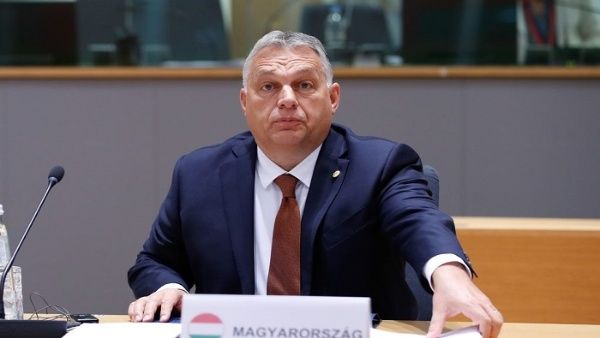
The sanctions rejected by Hungary are part of a sixth package of sanctions that the European Union intends to apply to Russia. | Photo: Latina Presses
Published May 6, 2022 (49 minutes ago)
The Hungarian authority indicates that it depends 65 percent on Russian gas and cannot undertake a national investment in the sector.
The Prime Minister of Hungary, Viktor Orbán, stressed this Friday the danger that vetoing the supply of gas and oil by Russia may entail for his country, as part of the sanctions that the European Union (EU) plans to impose on the Kremlin.
The European president referred to the impact as an "atomic bomb" that would damage the national economy of Hungary and to which they refuse, since they depend on 65 percent of the Russian resource.
"We would have to spend hundreds of billions of guilders to renew an oil refining system that we do not need now," stressed the head of government, referring to the cost in national currency that it represents for his nation.
Instead, he proposed reaching a new agreement that would avoid costly investments by European countries whose main oil and gas supply is Russia.
The sanctions on Russia rejected by the Hungarian governor are part of a sixth package of sanctions that the European Union intends to apply to Russian President Vladimir Putin as a reprimand for the military operation he is carrying out in Ukraine.
These restrictions were disclosed in a draft last Wednesday by the President of the European Commission, Ursula von der Leyen.
Hungary also rejected the proposal for sanctions against the rector of the Russian Orthodox Church, Patriarch Kirill, who is being tried for supporting the decisions of the Russian government during the armed conflict.
On the other hand, the Secretary of State for International Communications, Zoltán Kovács, reported Thursday that Hungary will not help Ukraine by sending weapons. However, the Office of International Communications of the Prime Minister's Office has declared that it will offer Ukraine aid amounting to 37 million euros.
In economic matters, Orbán expressed that he does not want to confront the EU, "but to cooperate, but this is only possible if they take into account our interests".
The sixth package of sanctions presented by the president of the European Commission aims to sanction military officers involved in Russia's military action in Ukraine.
In addition, it disconnects three Russian banks from Swift, including Sberbank, the largest in the country, and prohibits the transmission in Europe of three Russian state broadcasters that, in the words of von der Leyden, "aggressively amplify Putin's lies and propaganda ”.
This week, Hungarian government spokesman Zoltán Kovács rejected the Russian gas ban, claiming there is “no plan or guarantee as to how a transition based on current proposals could be managed and how Hungary's energy security would be ensured”. .
https://www.telesurtv.net/news/hungria- ... -0009.html
UN sends convoy to evacuate civilians from Azovstal compound
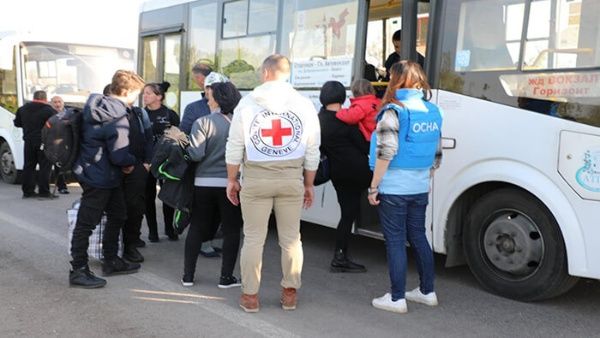
UN and Red Cross officials collaborate in the evacuation of civilians from the Ukrainian city of Mariupol. | Photo: @OCHA_Ukraine
Published May 6, 2022 (3 hours 29 minutes ago)
The UN operation comes amid a truce announced by Russia to allow the evacuation of civilians from the Azovstal industrial complex.
The Ukrainian city of Mariupol awaits the arrival on Friday of a new UN convoy for the evacuation of civilian refugees at the Azovstal steel mill.
The UN operation comes amid a 72-hour truce announced by Russian forces to allow civilians remaining in the industrial complex to leave.
The dispatch of UN trucks to the Azovstal industrial complex was announced Thursday by UN Under-Secretary-General for Humanitarian Affairs Martin Griffiths.
Over the weekend, an evacuation organized by the UN and the Red Cross made it possible to rescue a hundred civilians. On Wednesday, another 344 people were evacuated from the industrial compound, Ukrainian President Volodimir Zelensky said.
Information about humanitarian corridors is contradictory. While the Kremlin assures that they are working and that the truce is being respected, the Ukrainian president said Thursday night that Russian forces continue to attack the factory.
Russian President Vladimir Putin said he "remains ready" to ensure a "safe" evacuation of civilians, but urged nationalist militants still at the plant to lay down their weapons.
https://www.telesurtv.net/news/mariupol ... -0006.html
Google Translator
***********************************
On the consequences of the destruction of the Kremenchug Oil Refinery
May 6, 13:59

On the consequences of the destruction of the Kremenchug Oil Refinery.
Gauleiter of the Poltava region said that the Kremenchug Oil Refinery was completely destroyed as a result of a series of missile attacks by the Russian Armed Forces on the infrastructure of a strategic enterprise.
Of course, one should not take these statements on faith, perhaps some kind of fuel processing activity is still possible at the plant, and statements about complete destruction are made in order to avoid control finishing strikes.
The fact that the plant was badly damaged is a fact - in Ukraine, problems with fuel immediately worsened, and the prices for 92nd and 95th gasoline at gas stations immediately began to fly into space. But what about the complete destruction of the Kremenchug Oil Refinery still needs to be checked.
It is worth noting that if the attacks on the Kremenchug and Odessa refineries had been inflicted back in March, then the fuel crisis in Ukraine would have begun much earlier.
In fact, it has already become clear that Ukraine simply cannot compensate for the products of the Kremenchug refinery on its own.
Therefore, in the current situation, they are going to use gasoline supplies from Europe at European prices as a crutch. This will help avoid the lack of gasoline at civilian gas stations, but its prices will be from 70 to 110 hryvnia per liter.
Refineries are difficult (if not impossible) to restore. A new refinery for 2-4 million tons of oil costs about 350-500 million dollars.
https://colonelcassad.livejournal.com/7599363.html
Google Translator
*************************************************
WAR WAS UNAVOIDABLE
Rotislav Ishchenko
May 5, 2022 , 12:04 p.m.

Russian Army Ka-52 Crocodile helicopter on deployment (Photo: Vitali Ankov/Sputnik)
According to Sun Tzu, war is the worst way to solve problems. Thousands of years of human history have proved the great Chinese right.
It is almost always possible to win without war. Also, in a war, as a rule, the side that would have won even without the war wins. Thus, war is a confirmation of previous calculations that requires many resources. Generally speaking, your result can be calculated in advance. Therefore, as a general rule, a war is started (or provoked, which is basically the same thing) by those who do not want to endure their inevitable political defeat and try to change the course of history by force.
For example, Stalin planned to complete the rearmament of the Red Army by 1942 and cover the borders safely. But, contrary to Hitler's conviction, he did not plan to attack the Reich. In full accordance with Marxist doctrine, Stalin (documents of the time, including his personal speeches, testify to this) was to adopt the position of "wise monkey" and watch from above as two imperialist predators destroy each other in the valley, and then kill them both.
At the same time, of course, he planned to take advantage of the reliance on Soviet neutrality by both sides of the conflict to constantly improve the geopolitical position of the USSR. This did not exclude the blackmail of small countries and "special military operations" against them, prepared a little better than the Finnish War of 1939-40. But Stalin did not plan to wage a real war against an equally powerful rival: the costs would have been too high and the result would have been the same (or even worse) than without any military action.
Similarly, Russia did not intend to start military operations in Ukraine. He would have been quite happy with the situation where the West would continue to spend money on maintaining the death throes of the Russophobic regime, depleting its own resources and only making the situation worse with Ukrainian statehood.
The only critical condition for Russia was to ensure security on the west side. Moreover, the security of not only Russia, but the entire Greater Eurasia project.
In the long term, the Russian-Chinese project has already surpassed the American-European one. And the life and well-being of several tens of thousands of Ukrainian Russophiles in the balance of history meant no more than the life and well-being of no less a number of Russian citizens (including those living in Donbas and Transnistria), threatened in event of the outbreak of hostilities. Moreover, in case of war (which has already been confirmed by practice), the danger for Ukrainian Russophiles also multiplied more than once.
From the point of view of the ruling elites in Washington, even a compromise agreement, which Russia and China were willing to accept, to avoid the danger of a larger war, was a defeat for the United States. The very need to recognize oneself as an equal among equals was seen by US elites as a disaster.
Thus, the United States took a turn, showing both Russia and China that there can be no talk of any security compromise. Border regimes controlled by Washington will be used solely to put pressure on the borders of their geopolitical opponents. And this pressure will increase in the future.
This made war inevitable. The only question was who would start it and where. There was a variant of a Polish attack on Belarus, supported by the Baltic States and Ukraine. There was the option of kyiv attacking the Donetsk and Lugansk People's Republics. The option of a joint attack by Ukraine and Moldova in Transnistria was present in the calculations rather virtually. Chisinau was very much afraid of the outbreak of hostilities and could only be forced to join the already ongoing war, but not to start it.
There was the option of an "explosion" in the Caucasus, but it was difficult for it to become a major conflict because Russia, Iran and Turkey had no interest in the large geopolitical players penetrating the region. Moscow, Tehran and Ankara, despite their differences, were interested in finding common ground to solve regional problems on the basis of a tripartite compromise, without the involvement of external forces.
A major conflict could start with an Israeli attack on Iran, but the overall balance of power in the Middle East, after Russia won the campaign in Syria, forced Tel Aviv to be extremely cautious. Finally, the conflict could break out on the Indo-Pakistani, Indo-Chinese border and also in Taiwan.
The main task of the United States was to tie down the Russian and Chinese forces in the conflict zone, force their geopolitical opponents to waste resources senselessly in an endless war of attrition, and stay out of the conflict zone and cut bonuses.
At that point, when the first phase of the special operation stalled and then moved on to the second, clearly with its sights set on a long military crisis, the United States decided that at least half the job was done. It only remained to draw China into a local war and then keep the temperature in both conflicts high enough to weaken geopolitical opponents, but not high enough for crises to spiral out of control and spontaneously escalate, threatening to become in a nuclear world war. On the Ukraine crisis, the United States even managed to make a statement, promising Russia a new Afghanistan.
War is a very bad and extremely risky undertaking, which, if possible, should be avoided, but if it has already begun, then one should fight for victory, which will bring greater dividends than a compromise peace treaty would have afforded in pre-war terms.
While in the first phase of the special operation Russia considered that its task was to force the West into a compromise peace (conditions were placed on the Ukrainian delegation in the negotiations), the second phase is being carried out with the aim of achieving the greatest success.
I have already written about the time factor and the danger of an uncontrolled escalation of the crisis due to the inability of the US elites. I will not go back to her. Now I will only focus on the positive aspects that Russia has already squeezed and can still squeeze out of the crisis.
First. The West (the United States, Great Britain, and France) at the official level was forced to admit that it was waging a war of annihilation against Russia. The West itself is engaged in economic, informational, logistical and material support of the conflict, Ukraine plays the role of the instrument of a hot war, and the states of Eastern Europe are waiting their turn to serve as firewood to keep warm.
This fundamentally changed our relationships. Before the current phase of the crisis, Russia's task was to convince the West of the need for compromise agreements. This is not naivety, as some not very educated but very exalted people think; These are the rules of the game. You can't play to the upside if you don't want to end up in a world war against your will a couple of weeks after the start of the crisis.
Human experience shows that it is more advantageous to adopt a moderate position and demand negotiations to reach a global agreement, even if one is aware of the impossibility of reaching an agreement due to the lack of constructiveness of the adversary. The enemy is forced to respond to your proposals, you throw him off the precalculated pace of the crisis, the agreed measures become discordant and the allies fall out of favour. You can't win this way, but you can make your opponent nervous and make mistakes, which is the first step towards your victory.
With the beginning of the current phase of the crisis, Russia has started a war to win. Lavrov correctly says that all wars end with a peace treaty. Only here we previously proposed a peace treaty without war, and now our Foreign Minister emphasizes that the conditions for peace will depend on the outcome of the war, which our Western "friends and partners" declared to us, not us.
We have moved from a more complex (political and diplomatic) level of relations with "partners" to a simpler (military) one. We lose in political maneuverability, but we gain in social mobilization (simple tasks are clearer to ordinary people and do not arouse unnecessary suspicion), and we also gain momentum in the party.
Second. We force both the collective West and the entire world to decide which side a certain country is on. At the same time, we have declared a more constructive approach to defining allies than the United States. The Americans declared: "Whoever is not with us is against us," and we: "Whoever is not against us is with us."
As a result, not only did most of the world end up on our side (it is easier to maintain neutrality than to rebuild to please one of the warring parties), but even a NATO and European Union country like Hungary, which seems support sanctions, also maintains and tries to develop trade relations with Russia.
Even a NATO country like Turkey, the most important American partner on the bloc's southern flank, without whose support NATO cannot fight not only in the Black Sea, but even in the eastern Mediterranean, is trying to play its game, earning bonuses in relations with both parties to the conflict. In our ranking, Ankara is an ally; in the American, it is an adversary.
As a result, the "international community" has been reduced to a Euro-Anglo-Saxon bloc plus Japan and the Republic of Korea and has become an object of ridicule. The "civilized world" suddenly saw its economic and financial systems (not ours) crumble, its sources of raw materials out of reach, and many of its promising markets closed to it.
The West, once slowly sliding, began to collapse into a crisis worse than during the Great Depression.
Third. Within Russia, not only the fifth column fully manifested itself. He also left the country almost completely. The West has lost thousands of experienced influencers. The level of consolidation of the Russian elite has increased, their mutual understanding and interaction with society has grown.
All these positive aspects of the current crisis practically guarantee us a political victory. The problem, however, is that the crisis has already turned into a military crisis. Therefore, also on the battlefield there must be a victory that at least our own society recognizes as such.
Well, the main price we pay (and pays all of humanity) for all this splendor is the greater risk of an uncontrolled development of the crisis. So much so that even Lavrov was forced to declare the growing danger of nuclear war.
We can take comfort in the fact that we did not choose such a risky path; it was imposed on us. Until the last moment, we offered to make a good deal.
https://misionverdad.com/traducciones/l ... inevitable
Google Translator
*************************************************
Russian UN Ambassador Vassily Nebenzia: “This is Not a War in Ukraine, but a Proxy War Between the Collective West and Russia”
Posted by INTERNATIONALIST 360° on MAY 5, 2022
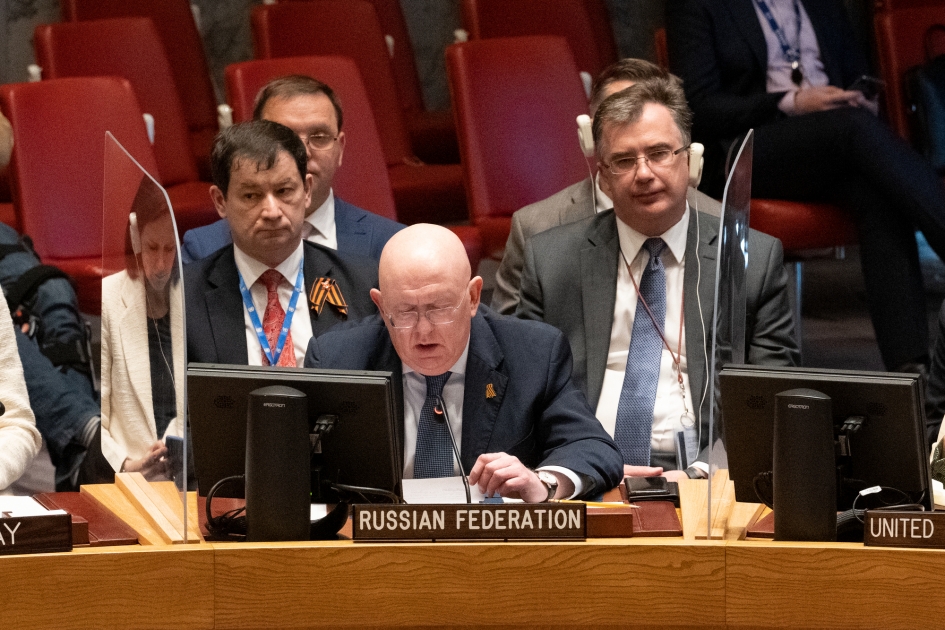
Statement by Permanent Representative Nebenzia at the UN Security Council Meeting on the Situation in Ukraine
Madam President,
First, we would like to congratulate the United States on its assumption of the presidency of the Security Council in May. We trust that, unlike before, your presidency will be effective and impartial, as should be typical of a Security Council president when he or she is in office and not acting in a national capacity.
We are forced to say a few words for the record about the participation of High Commissioner for Human Rights, Ms. Bachelet, in today’s meeting in her capacity as a sheriff. Without going into the substance of what she said or her one-sided assessments, to which we had many questions, I would like to remind both colleagues and the High Commissioner herself that, according to UNGA resolution 48/141, which established the mandate of the High Commissioner, this official is primarily responsible, under the guidance and auspices of the Secretary-General, for United Nations human rights activities within the overall competencies, powers and decisions of the General Assembly, ECOSOC and Human Rights Council. No other matters relating to the maintenance of international peace and security or the protection of civilians fall within his competence.
Madam President,
For two months now we have been discussing the events in Ukraine, and for two months now we have been hearing the same question in addition to the stream of hostility, lies, fakes, hatred and insults: How could Russia unprovokedly, as they say, “attack a sovereign, democratic, non-aggressive, independent, peaceful Ukraine?” After all, it posed no threat to Russia itself!
Among those who say this or who think this, I admit, there are sincere people who didn’t understand what was really going on all those years, and there are deceitful people and countries who have long wanted to turn Ukraine into a bridgehead for a battle with Russia, and they have been doing everything for that since Ukraine gained its independence 30 years ago. Politically. Ideologically. And today they continue to do so by pumping weapons into Ukraine.
What has been happening in Ukraine itself all these years would not fit into the format of today’s speech. And it is unlikely that many of you will want to hear or understand it. Just as you didn’t understand it before and didn’t want to understand it. We have spoken repeatedly here in this room about the difficulties of translation. You listen to the Ukrainian authorities in translation, and they have told you and are telling you what you yourself want to hear. And we have listened and listen to the Kiev authorities without translation, and we know and know about their deceitfulness, their lack of agreement, their lies, their deception, including of their own people throughout all these years. Instead of organizing their own state, the regime of oligarchy and total corruption flourished, which made even the Western patrons of Kiev cringe. We know how they tried to create their own ideology based on the denial of everything Russian and everything that has bound us together for centuries. You don’t know and don’t want to know what kind of insults and hatred was used against everything connected with Russia, not only at the household level, but also at the level of state and public figures. You don’t know that during the years of independence a whole generation of people, brought up on hatred of Russia, grew up on the basis of delusional Ukrainian history textbooks. Russophobia has become the main domestic national product of the Ukrainian government and the main export commodity of Ukraine. You will not find anything like this in Russian society with respect to Ukraine and Ukrainians. You just don’t hear their slogans, you don’t notice their torchlight marches, you don’t see their nationalists and outright Nazis. One clever man, the Ukrainian historian Oles Buzina, who was murdered by nationalists in 2015 and who was a patriot of Ukraine (of course, the crime has not yet been investigated, even though the murderers were known) rightly said that as the empire collapsed, extreme farcical nationalism, mixed with deep provincialism, began to flourish in the separated outposts. Ukraine is the clearest example of this.
Today it is not a war in Ukraine, as you say. It is a proxy war between the collective West and Russia. It is as if you have only been waiting for this moment to launch a flywheel of repression against Russia. And if there is any talk of a world war, it is undoubtedly being waged today in the economic sphere. We have no doubt that you have been preparing for it, because the speed at which this flywheel has been launched makes it impossible to doubt that you have been preparing for it well in advance. You are simply simply robbing in the best traditions of the Wild West. In case anyone here is not aware, let me inform you that in addition to countless sanctions and bans, taking private property from Russian citizens who have nothing to do with the SWO, Western countries have frozen $300 billion worth of accounts belonging to Russia. What international law are you talking about then? This is not even a rule-based order you made up. This is not even colonialism, when the enlightened West went to plant civilization in its colonies, robbing their natural resources at the same time. This is nothing less than elementary lawlessness and robbery. So today the masks have simply been thrown off. But now it has become fashionable to blame Russia for the energy and food crisis, which you yourself created.
For eight years we have been telling you about the suffering of people in Donbas. About the shelling by the AFU and nationalist battalions. About the deaths of civilians from this shelling. About the fact that it was not Donbas that went to Kyiv, but Kyiv came to Donbas only because people there did not put up with the coup d’état and the policy of total Ukrainianization by the Maidan authorities. You didn’t respond. You do not want to remember that similar protests in 2014 were brutally suppressed in Kharkiv, Odessa, and Mariupol. We have been telling you all these eight years that this had to stop. There was very little that needed to be done: the Ukrainian authorities had to implement the Minsk agreements, which they had publicly refused to do, using your cover and support, and being under the illusion of complete impunity. They liked to feel part of the so-called civilized world and be your vassals. I wonder if, in light of the current situation, the bankrupt Ukrainian government is biting its elbows about this today. And now, when after all this, after all the crimes of the Kiev regime and warnings, the SSO for the liberation of Donbass began, we suddenly heard desperate cries: why us? (those who know Ukrainian-Russian folklore, will understand what I am talking about).
But I will answer this question myself: it is all thanks to your Western sponsors and patrons, who have been rubbing their hands with joy at the sight of Ukraine turning into an anti-Russia. Everything that is happening now did not start at the end of February. Nor even eight years ago. It began much earlier with the encouragement and support of the United States and its Western satellites.
We have spoken repeatedly about our security concerns. You in the West dismissed these concerns, did not take them seriously, and assured yourselves that NATO was purely defensive in nature, all the while pushing the bloc’s borders right up against our own. And today you’re already talking about the Alliance’s global role, including in Asia. We have put forward our proposals for a global and indivisible security architecture. You have arrogantly dismissed them. And do not need to convince us today that your plans never included the desire to pull Ukraine into NATO. Yes, there was. Not today, but tomorrow. We did not have and do not have any illusions about this.
Once again we want to emphasize: the West does not need Ukraine as such, it was and is needed only as an arena of confrontation with Russia. Ukraine shouldn’t have any illusions either. The West will not help Ukraine. Except by pumping weapons and trying to prolong the conflict. And the West is already at war with Russia by the proxy war method.
Today one cannot fail to be even more surprised by the hypocrisy of our Western partners. The subject of U.S. and Western aggression in Iraq, Libya, Syria, Yugoslavia, the inglorious campaign in Afghanistan, not to mention what happened earlier, for example, in Vietnam, has sort of come to naught. These tragedies are not as if remembered today. It is as if they never happened. After all, these events are long gone. And the West has nothing to do with this. After all, there was a struggle for democracy there! True, it cost the lives of millions of people, destroyed cities and countries. And all this from thousands of kilometers away from our own home. On the other hand, today we hear the crazy talk about sponsors of terrorism. I will allow myself to ask a rhetorical question: where did ISIS come from? ISIS emerged as a result of the U.S. invasion of Iraq, and its backbone was made up of former members of the Iraqi army. So who is the real sponsor of terrorism?
Today we live in a state of information, or rather, disinformation warfare. Its object is Russia. We have already said more than once what colossal forces of special psychological operations are thrown into the information battlefield. The task is not only to smear the enemy, but to disarm him, depriving him of access to the world public and accusing him of propaganda in passing. The world public needs to hear only one version of events. About “the atrocities of the Russian military, the deliberate shelling of houses and the killing of civilians.” And a completely delusional idea -“about the genocide of the Ukrainian people.” The West has been engaged in a multi-year artillery preparation on the information field. But if before the information war was accompanied by a real war, now it is exactly the opposite.
On the other hand, the world community should hear nothing about Ukrainian provocations, such as those in Bucha or Kramatorsk, about how Ukrainian nationalists cover themselves with civilians by placing firing points near hospitals, schools and kindergartens, near residential buildings and in citizens’ apartments, how they drive them into basements and not let them out, not allowing them to exit through the humanitarian corridors provided daily by the Russian military. And if someone comes out, they are often shot in the back by their own people. There is plenty of evidence of this from the Ukrainians themselves. Only you don’t want to hear it. Have you ever seen the testimonies of Russian prisoners of war and the footage of their torture by Ukrainian nationalists that they post on social media? Have you ever seen something similar from Russian servicemen towards Ukrainian POWs? Have you seen the reports of foreign correspondents who are brought by the Russian military to liberated Ukrainian cities and allowed to look around and talk to anyone? Have you ever heard what the people of these towns are saying, how the Ukrainian nationalists acted and behaved toward them?
I can’t help but notice that the UN Secretary General’s trip to Russia and Ukraine has been presented by both the media and Western politicians in an absolutely perverse way. Thus, the impression is deliberately created that Ukraine and the UN managed to “persuade” Russia to open a humanitarian corridor to evacuate civilians from Azovstal. Meanwhile, the Russian side regularly opens the humanitarian corridors there, and they are still open today, by the way. The problem is that Azovstal militants prefer to use people as “human shields. This is openly stated by those who came out of there. Many of them, contrary to the false claims of the Ukrainian authorities, chose to remain in the DNR or expressed a desire to return to liberated Mariupol. Today, the Azov insurgents finally threw off their masks and demanded a ton of food and medicine for each of the 15 hostages released at Azovstal. Before them, only ISIS and Jabhat al-Nusra terrorists did so.
The Permanent Representative of Albania today quoted Trotsky, who said that the army is a cast of society. Is that the episode you were referring to?
Tomorrow we are holding an Arria formula meeting on Ukraine’s violation of international humanitarian law. And we will not be telling you what is going on, but eyewitnesses of those events, Ukrainians and foreign journalists. Come and listen, if you have even the slightest desire to hear objective information.
Thank you.
https://libya360.wordpress.com/2022/05/ ... nd-russia/
Ukraine: Touring an Aidar Dungeon
Posted by INTERNATIONALIST 360° on MAY 5, 2022
Fergie Chambers
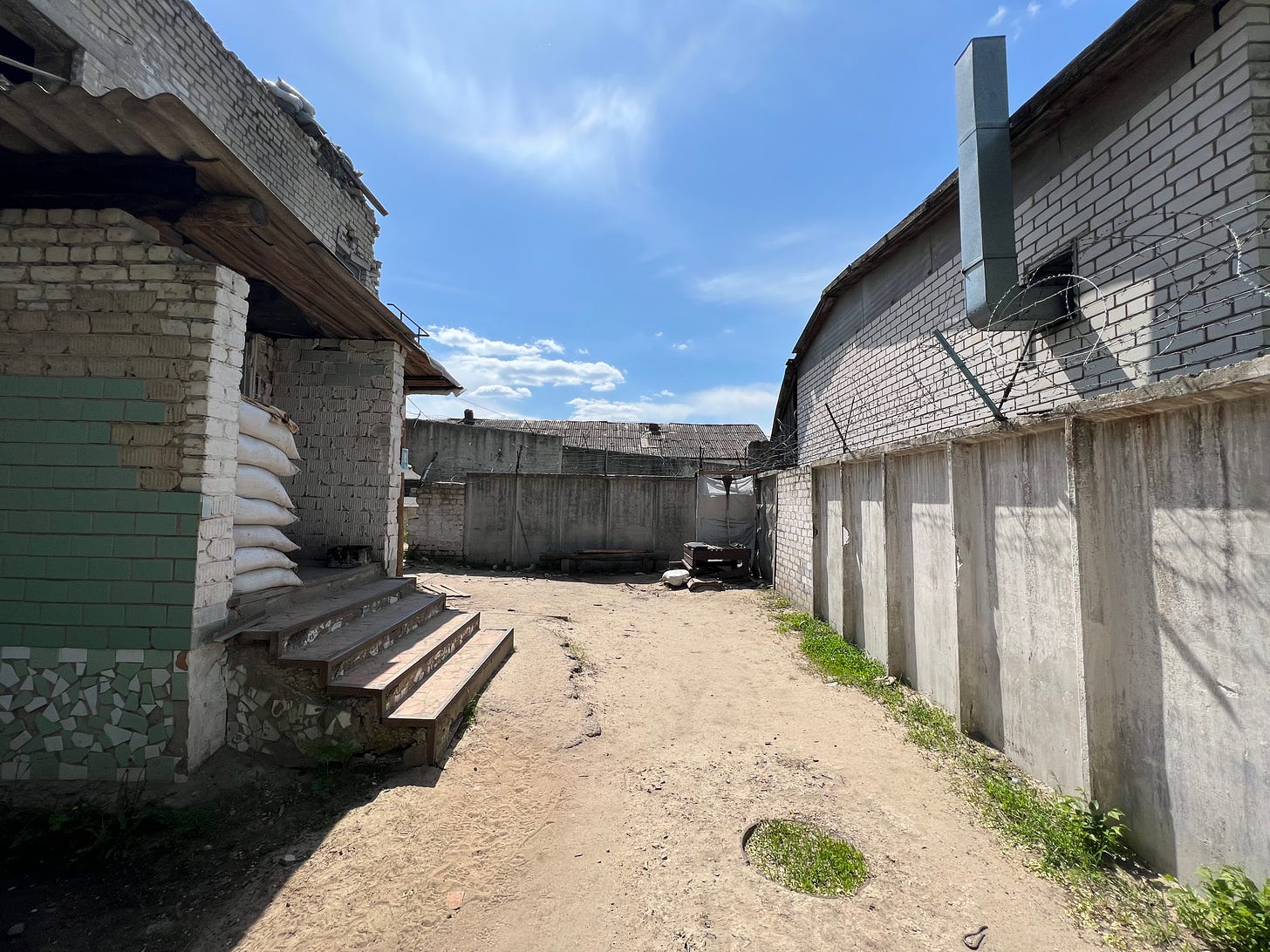
Inside the walls of the small-town sausage plant which became a Neo-nazi prison
The horrors of a meat plant-turned Ukrainian Neo-Nazi base and prison
POLOVYNKYNO, LUGANSK PEOPLE’S REPUBLIC, 4.5.2022-Shortly after the U.S.-backed Maidan coup in the winter of 2014, in conjunction with Crimea’s secession from Ukraine and union with Russia in March of that year, protests began to break out in the Donetsk and Lugansk regions in the east of the country, known together as Donbas. In Donetsk, to the south, the now-notorious Neo-Nazi “Azov” Battalion emerged as the principal combatant force on the Ukrainian side; in the north, along the front lines in Lugansk, known since May of 2014 by anti-Maidan, Russian separatists as the Lugansk People’s Republic (LPR), the lesser-known, but possibly more ruthless “Aidar” Battalion was more prevalent. Even Amnesty International, an organization which is reliably in the corner of western informational hegemony, reported back in 2014 on the abuses of Aydar.
Until Russia’s “Special Military Operation,” and official entrance into the Donbas conflict in February of this year, Ukrainian forces occupied most of the territory to the north west of Lugansk city, past the Siversky Donetsk river and the town of Shastiya. Roughly 75 kilometers up the M21 highway from that line, in the outskirts of Starobilsk, is the village of Polovynyko, which locals and officials from the LPR Ministry of Foreign Affairs say soldiers in the Aidar battalion had taken control of by March of 2014.
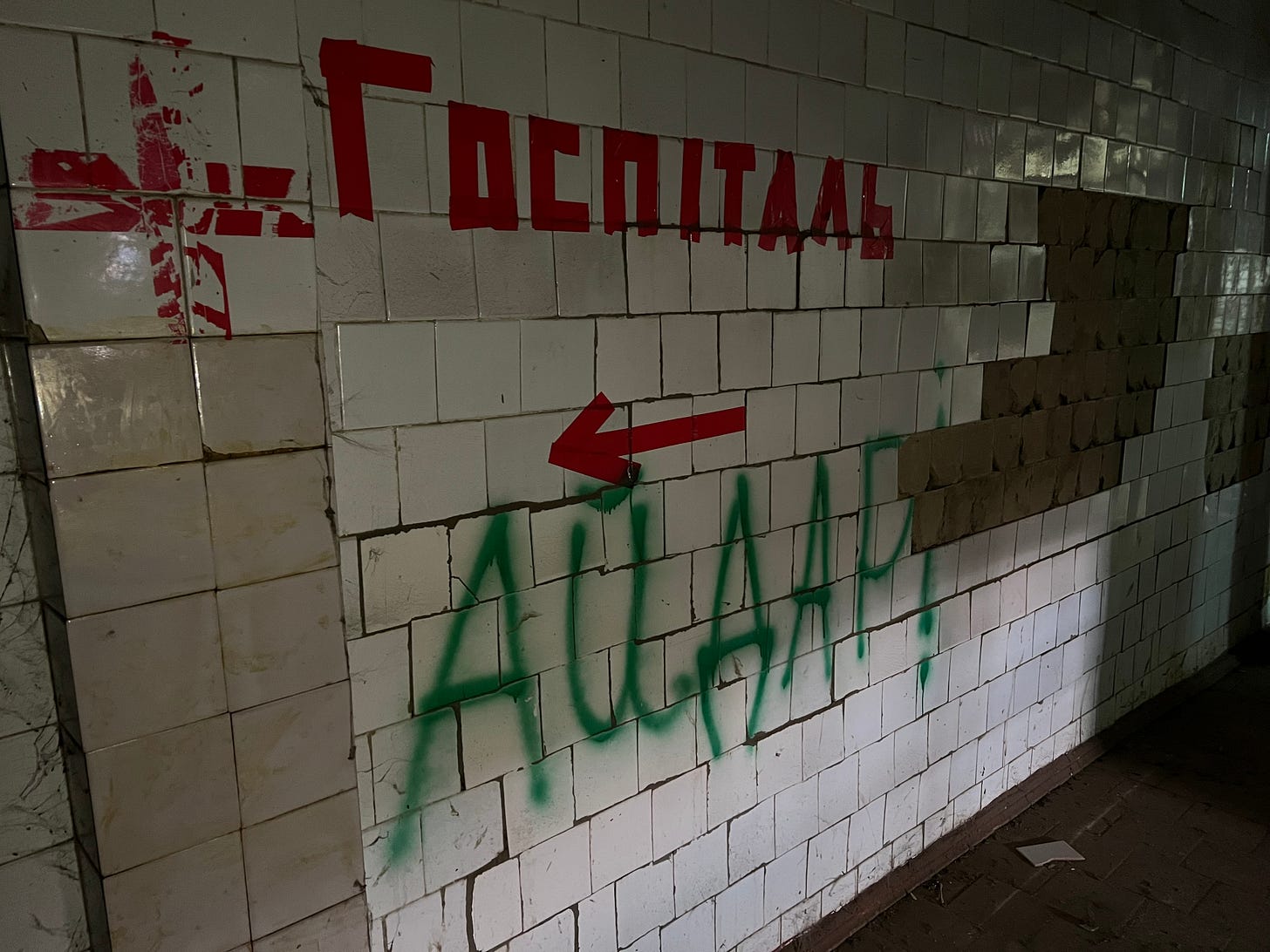
“Aidar!” seen written in graffiti on the walls of what was the barracks area of the converted plant
Shastiya resident Svetlana Konoploya, among the charter members of the LPR parliament, and now a representative for the Ministry of Foreign Affairs, told this author that those Aidar forces commandeered what had formerly been a sausage plant and smokehouse in Polovynyko, and converted it into a base, a weapons storage facility, and a military prison. I was with a convoy of journalists from 5 western nations when we met her there, along with other representatives from the ministry, and a former prisoner, on Wednesday.
Just past an LPR military checkpoint, we were led down a dirt road to a grim, walled-in concrete structure, swarming with barbwire, and heavily guarded by LPR soldiers. Ms. Konoploya, who had herself been detained for 85 days at another facility for helping secretly bury two separatist soldiers killed in battle, explained how “anyone who did not support the Maidan coup became enemies of the Ukrainian state,” and that many of those in the area who were vocal in their discontent, including, of course separatist combatants, were taken to this facility, incredibly reminiscent of a concentration camp.
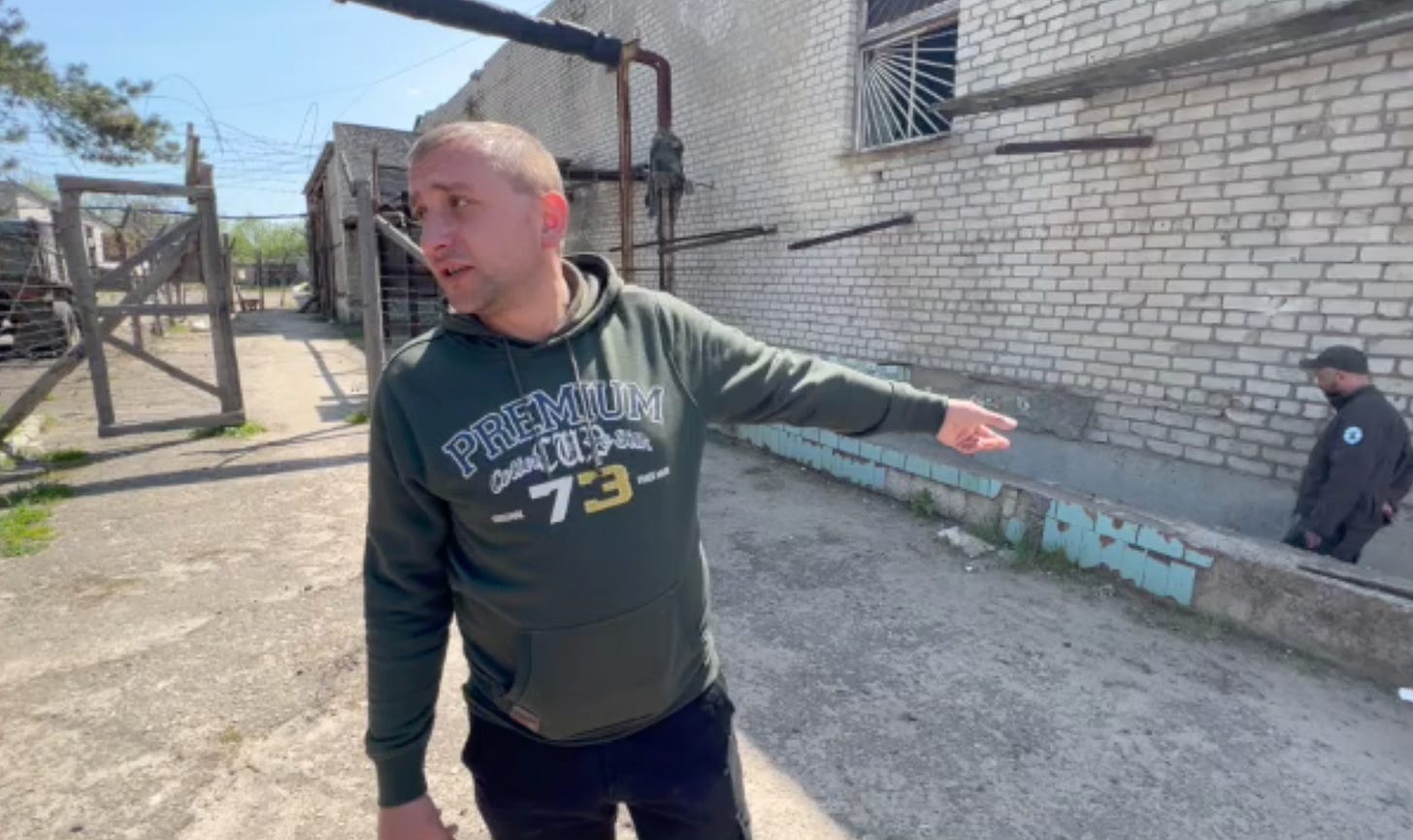
Ivan Maslov, LPR People’s Militia, spent one month in captivity in the Aydar prison camp
One such case was Ivan Maslov, a member of the Lugansk’ People’s Militia and native of Lugansk, the LPR capital, who was arrested in June of 2014 with his commanding officer and one other soldier after a firefight on a bridge. He told us that he beaten all night, and then transported in the trunk of a car to the sausage plant, where he and the other men were thrown into unimaginably small cells, two prisoners sharing dark, damp, cold spaces not much bigger than closets, formerly used as stoves for smoking meat. Ivan stood next to his former cell as he described his month of detention in these conditions, and the almost daily process of interrogation, humiliation, and torture.
“They beat me with their hands feet, and with rubber police batons that are banned in Ukraine. They would put our hands on chopping blocks and slam an axe down next to them. They electrocuted us with telephone wiring, and small generators.”
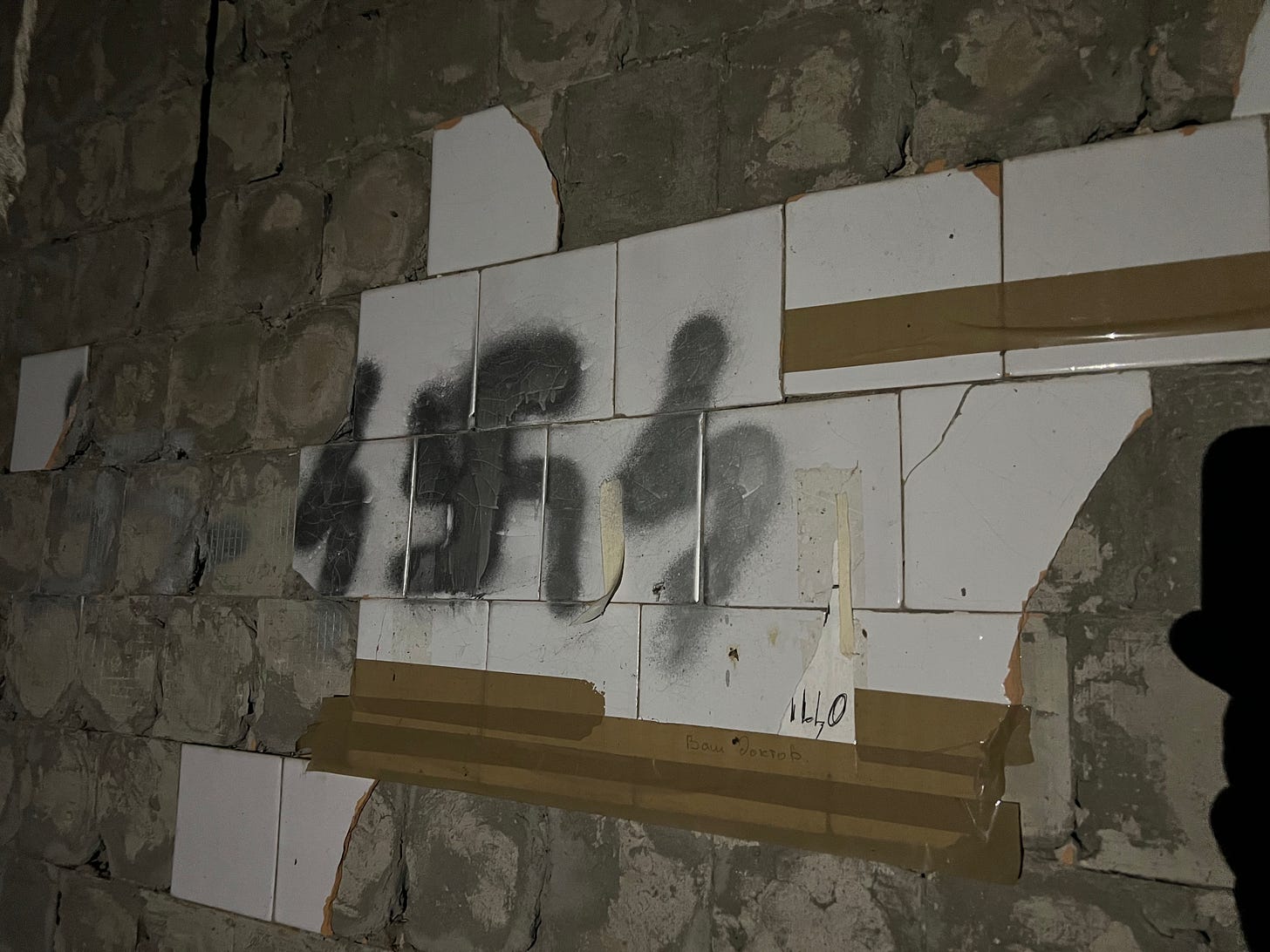
Ivan and his cellmate shared this space, day and night. They were fed through the grates in the ceiling.
During his month of captivity, Ivan’s commanding officer died in an adjacent cell, where his body lay for three days, before disappearing entirely. Ivan believes that he was poisoned. He said that of the number of captives in the dungeon of six cells, who came in and out, most were in fact civilians, arrested on petty charges, or even less, for simple slander, or for the sake of extortion, “a businessman was in the next cell; his family paid to get him out. Another guy was arrested based on slander, and was kept here for over a month, in his shorts in this cold basement.” Ms. Konoploya stated that arrests were regularly made in order to extract money from prisoner’s family, or more often, for cars, the documents which were then transferred with the aid of government officials in Kiev.
In the room next to the dungeon, Ilya Podkolzin, also from the Ministry of Foreign Affairs, told us how multiple former prisoners claimed to have been subjected to mock executions, where they were told to stand against a wall, and then had machine guns fired above their heads and at the walls beside them. There were bulletholes all over the walls, and ricochet marks everywhere.“They were told this was a death room, that it would be their final walk,” he said.
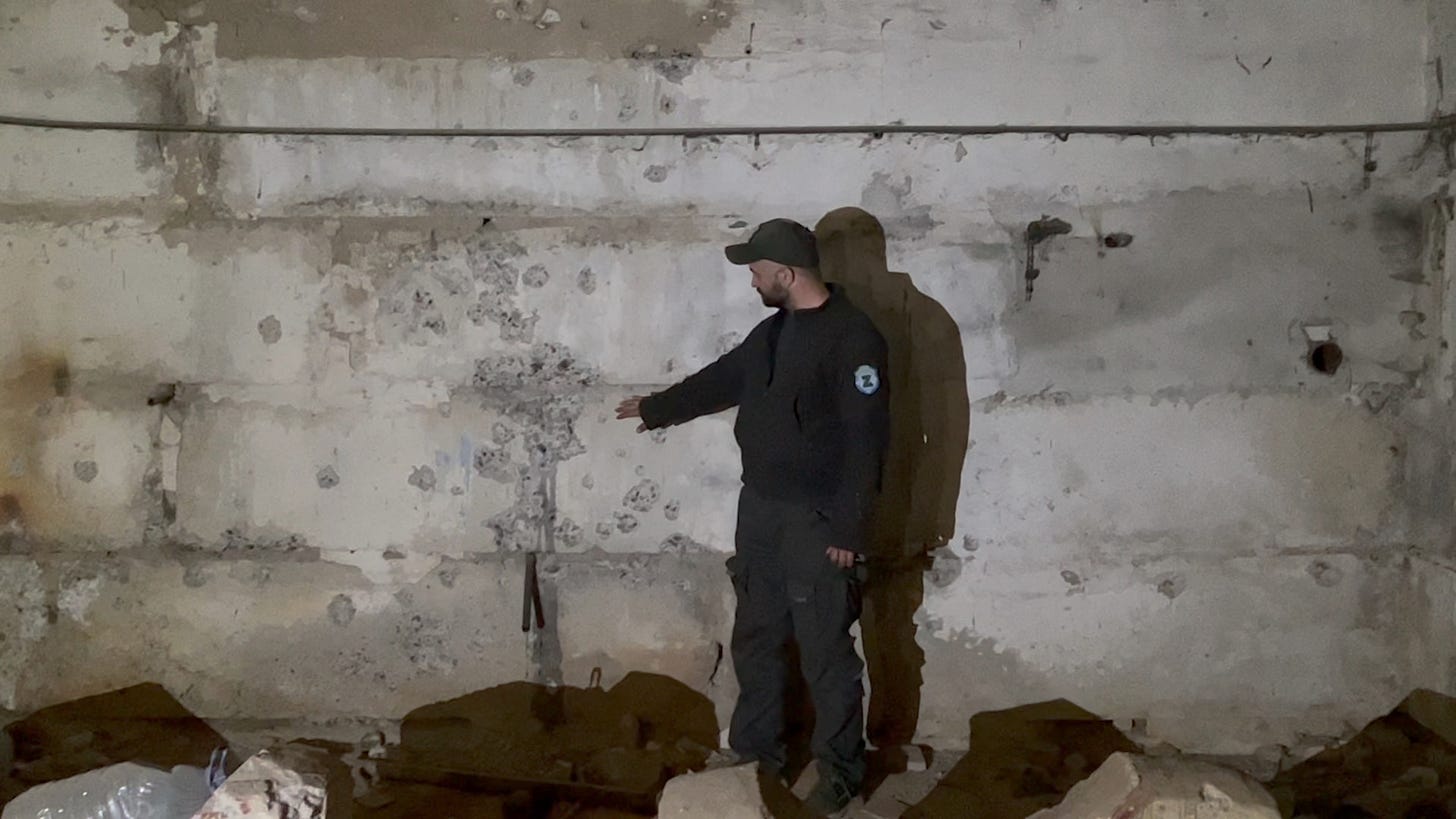
Ilya Podkolzin points to a wall where bullets were fired just past prisoners who believed they were being executed
Among the number of harrowing narratives relayed to us, one particularly disturbing was that of a woman named Oksana, who Svetlana Konoploya said had been a close friend. She had been detained in the midst of a major advance into LPR territory, and was held for weeks, raped repeatedly, and left naked in her cell. Ms. Konoplyova told us, “she was beaten to such an extent that they decided she would not survive, so they threw her out into the village. But she survived, because she knew three children waited for her at home, and she spent her remaining months assisting others who were released from captivity.” After all of this, the woman died from respiratory complications, which her family believes came from her detainment in the prison.
Sergei Belov, of Lugansk, a liaison for the LPR government, asserted that multiple war crimes had been committed here and elsewhere in LPR during the conflict, and that regardless of when or how the war ends, the government intends to seek some form of prosecution. He told me that multiple letters were drafted by LPR authorities to the Kiev government, to various western (including American) humanitarian organizations, to the OSCE, to the Red Cross, and to the ICC at the Hague, but that no response was ever received.

This Swastika and SS bolts were among the nazi symbols painted on the walls of the upper floor; it’s notable that the aging, and the removed tiles indicate that this was not done after Ukrainian forces vacated the building
Throughout the building, which was vacated by Aidar when Russian and LPR forces recaptured the nearby region in late February, were remnants of the nationalists who had occupied it as a base. This author saw swastikas were painted on walls, stickers with cartoons calling for the murder of Russians, pamphlets with crosshairs on the face of Russian President Vladimir Putin, along business cards with contacts for Kiev government legal advocates, food, medicine, and religious materials. One booklet, unbelievably, given the larger context, described how to “live the life of a Christian soldier.”
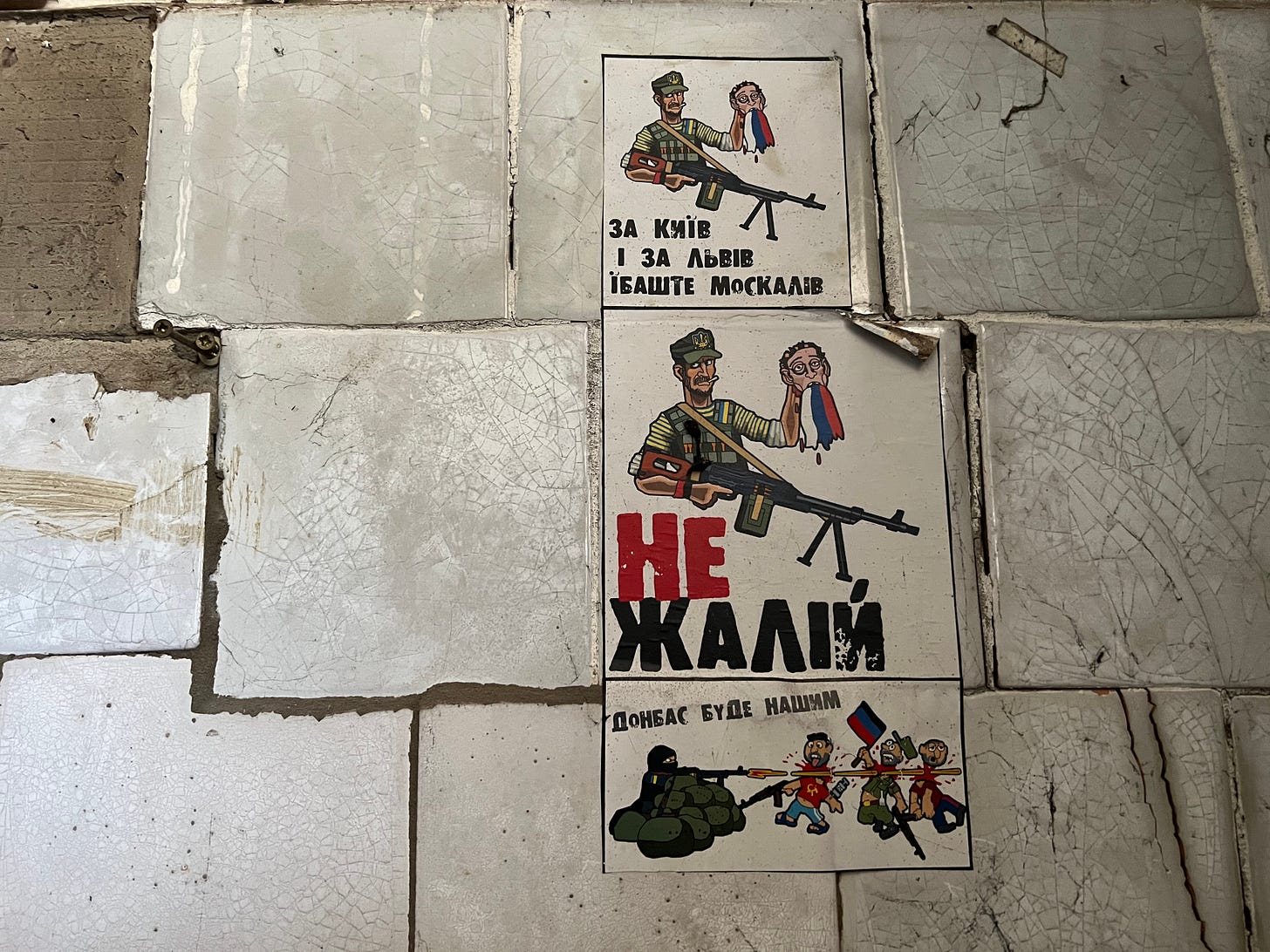
Stickers on the wall read, in Ukrainian, “For Kyiv and Lviv, Kill Russians” and “Donbas will be Ours”
The horrors of the prison operations were the main focus of the visit, but it was clear that many weapons had been stored here. An upstairs loft had visible mounted gun positions, and in the front drive lay the empty case of a Tochka-U rocket, commonly used against the Separatist Republics by Ukrainian forces.
After a week of visiting shelling sites in civilian areas on an almost daily basis, it was difficult to imagine seeing something more disturbing. Wednesday’s visit to the Aidar dungeon proved this assumption wrong, and reinforced the blatant reality of a Ukrainian regime that is overrun with nationalism, barbarism, and criminality, particularly in its armed forces, and most especially aimed at the people of Donbas.
The Aidar battalion was made an official part of the Ukrainian military in 2016, and has participated in a number of Kiev state-sanctioned events, including last year’s independence parade.
You can find video of my visit to the prison here: https://vimeo.com/706403055?embedded=tr ... r=42301792
We toured a former sausage plant, which had been converted from 2014-March 2022 into a prison and weapons storage facility for the Ukrainian neo-Nazi “Aydar” battalion. Footage of the prison, and interview with a former inmate.
https://libya360.wordpress.com/2022/05/ ... r-dungeon/

